Top Tips on How To Apply for an African Tourist Visa
:max_bytes(150000):strip_icc():format(webp)/anoukmarrakech-56a373305f9b58b7d0d20299.jpg)
Choosing to visit Africa, especially if it's your first time , is one of the most exciting decisions you'll ever make. It can also be daunting because most African destinations require a degree of careful pre-planning. This is especially true if you need to take precautions against tropical diseases like Yellow Fever or Malaria ; or if you require a visa to enter the country.
Some countries, like South Africa , allow visitors from the United States and most European countries to enter without a visa as long as their stay doesn't exceed 90 days. For the vast majority of African countries, however, visitors from the United States and Europe will need a tourist visa. These include top safari destinations Tanzania and Kenya ; and Egypt , popular for its world-famous archaeological sites .

Research Your Visa
The first step is to find out whether you need a tourist visa or not. You'll find plenty of information online, but be careful—visa rules and regulations change all the time (especially in Africa!), and this information is often outdated or incorrect. To make sure you're not misadvised, get your information directly from the country's government website, or from the nearest embassy or consulate.
If your country of origin (i.e. the country listed on your passport) is not the same as your country of residence, make sure to advise the embassy staff of this when making your inquiries. Whether or not you need a visa will depend on your citizenship, not on the country that you're traveling from. Some countries (like Tanzania) require a tourist visa but allow you to purchase one on arrival.
Key Questions to Ask
Whether you choose to search for information on the country's visa website or to speak directly to the embassy staff, here is a comprehensive list of questions you need to be able to answer:
- Do you need a tourist visa?
- If so, is it possible to purchase a visa on arrival, or will you need to apply for it in advance?
- How long is the tourist visa valid for?
- Does the validity of the tourist visa start on the date of issue, or on the date of arrival?
- Do you require single or multiple entry visas (this will depend on your planned itinerary)?
- What documentation do you need to supply?
- How much does the visa cost and what is the accepted method of payment?
- How long does it take to process the visa?
- How far in advance should you apply for your visa?
List of Requirements
If you do need a tourist visa, there will be a set list of requirements that you need to be able to fulfill in order for your visa to be granted. These requirements differ from country to country, and it is essential that you check directly with the embassy for a complete list. However, at the very least you will need the following:
- A valid passport: In most cases, your passport needs at least two blank pages, and to be valid for at least six months after your intended date of departure.
- A visa application form: These are usually available for download from the government or embassy website.
- Passport photos: Usually, you will need two photos, both of which need to adhere to standard passport photo regulations.
- Proof of return or onward travel: You will need to be able to prove that you intend to leave the country, either by showing return flights or flights to your next destination. Often, you will need to provide a copy of your itinerary as well.
- Application fee: Payment methods differ from country to country and depend on whether you're applying in person or online.
If you're applying via post, you will also need to make arrangements for a courier service, or supply a stamped, self-addressed envelope so that your passport can be returned to you. If you're traveling to a Yellow Fever endemic country , you will need to carry proof of Yellow Fever vaccination with you.
When to Apply for Your Visa
If you have to apply for your visa in advance, make sure to time your application carefully. Many countries stipulate that you can only apply within a certain window prior to your trip, i.e. not too far in advance, and not at the last minute. Generally, it's a good idea to apply as far in advance as possible, in order to give yourself time to overcome any complications or delays that may arise.
There is an exception to this rule, however. Sometimes, visas are valid from the moment they're issued, rather than from your date of arrival. For example, tourist visas for Ghana are valid for 90 days from the date of issue; so applying more than 30 days in advance for a 60-day stay could mean that your visa expires before your trip finishes. Consequently, checking timings is a key part of your visa research.
Applying in Advance vs. on Arrival
Some countries, like Mozambique , will often issue visas on arrival; however, in theory, one is supposed to apply in advance. If the country you're intending to visit has any ambiguity over whether or not you can obtain a visa on arrival, it's always better to apply in advance instead. This way, you minimize stress by knowing that your visa situation is already sorted—and you also avoid long queues at customs.
Using a Visa Agency
Although applying for a tourist visa is generally quite straightforward, those that feel overwhelmed at the thought of the inevitable bureaucracy should consider using a visa agency . Agencies take the stress out of the visa process by doing all of the runnings around for you (at a charge). They are especially useful in exceptional circumstances; for example, if you need a visa in a rush, if you're traveling to more than one country, or if you're organizing visas for a large group.
Any Other Kind of Visa
Please be aware that the advice in this article is geared towards those applying for tourist visas only. If you're planning on working, studying, volunteering or living in Africa, you'll need a different type of visa altogether. All other visa types require additional documentation and must be applied for in advance. Contact your embassy for further details.
How to Find Your Nearest US Passport Office
Required Documents for Travel to China
Visa Regulations for Asian Countries
Vital Information for the First-Time Visitor to Thailand
Marriage Laws for Caribbean Destination Weddings
Travel to Africa and the Middle East: A Reopening Timeline, Country by Country
Visa Requirements for the Netherlands
Visa Requirements for Vietnam
Visa Requirements for Myanmar
Visa Requirements for Greece
Visa Requirements for India
Visa Requirements for Sweden
Guide to Planning a Trip to Israel
ethiopia travel tips to know
VAT Rates in Iceland and Refund Information
Visa Requirements for Germany
Security Alert May 17, 2024
Worldwide caution, update may 10, 2024, information for u.s. citizens in the middle east.
- Travel Advisories |
- Contact Us |
- MyTravelGov |
Find U.S. Embassies & Consulates
Travel.state.gov, congressional liaison, special issuance agency, u.s. passports, international travel, intercountry adoption, international parental child abduction, records and authentications, popular links, travel advisories, mytravelgov, stay connected, legal resources, legal information, info for u.s. law enforcement, replace or certify documents.
Before You Go
Learn About Your Destination
While Abroad
Emergencies
Share this page:
South Africa
Travel Advisory February 5, 2024
South africa - level 2: exercise increased caution.
Updated to reflect safety consideration when using GPS navigation.
Exercise increased caution in South Africa due to crime and civil unrest .
Country Summary: Violent crime, such as armed robbery, rape, carjacking, mugging, and "smash-and-grab" attacks on vehicles, is common. There is a higher risk of violent crime in the central business districts of major cities after dark.
Using GPS navigation can lead to unsafe routes. GPS navigation may suggest shortcuts through townships as the quickest preferred route but can lead to increased risks of crime.
There have been incidents in which tourists traveling in Cape Town while using GPS navigation apps have been routed through residential areas with high rates of violent crime. The safest approach to return a rental car to Cape Town International Airport is to take the N2 highway and follow signs to Airport Approach Rd ( exit 16 ). Alternatively, request the rental car company to collect your vehicle and subsequently arrange an airport transfer from established taxi companies or established ridesharing services to reach the airport.
Demonstrations, protests, and strikes occur frequently. These can develop quickly without prior notification, often interrupting traffic, transportation, and other services; such events have the potential to turn violent.
Please see our Alerts for up-to-date information.
Read the country information page for additional information on travel to South Africa.
If you decide to travel to South Africa:
- Research your route in advance, stay on major highways, avoid shortcuts through townships, and avoid reliance on GPS navigation apps.
- Avoid walking alone, especially after dark.
- Avoid visiting informal settlement areas unless you are with someone familiar with the area.
- Do not display cash or valuables.
- Drive with doors locked and windows closed.
- Always carry a copy of your U.S. passport and visa (if applicable). Keep original documents in a secure location.
- Enroll in the Smart Traveler Enrollment Program ( STEP ) to receive Alerts and make it easier to locate you in an emergency.
- Follow the Department of State on Facebook and Twitter .
- Review the Country Security Report for South Africa.
- Prepare a contingency plan for emergency situations. Review the Traveler’s Checklist .
- Visit the CDC page for the latest Travel Health Information related to your travel.
Embassy Messages
View Alerts and Messages Archive
Quick Facts
30 days beyond your intended date of exit from South Africa..
2 consecutive empty visa pages per entry (not including endorsement pages).
No, if visiting 90 days or less.
Yellow fever at least 10 days before arrival is required for travelers originating from or transiting through WHO-designated yellow fever countries.
ZAR 25,000; Foreign currency unlimited if declared; No Kruger coins.
ZAR 25,000; Foreign currency unlimited if amount was declared on entry; Up to 15 Kruger coins if proof purchased with foreign currency.
Embassies and Consulates
U.S. Embassy Pretoria 877 Pretorius Street, Arcadia Pretoria 0083 South Africa Telephone: +(27)(12) 431-4000 / 012-431-4000 Fax: +(27)(12) 431-5504 / 012-431-5504 The U.S. Embassy in Pretoria does not provide consular services to the public. Facebook Twitter Email: [email protected]
U.S. Consulate General Johannesburg 1 Sandton Drive (opposite Sandton City Mall) Johannesburg 2196 South Africa Telephone: +(27)(11) 290-3000 / 011-290-3000 (Monday – Thursday: 8:00 a.m. to 5:00 p.m.; Friday: 8:00 a.m. to 12:00 p.m.) Emergency After-Hours Telephone: +(27) 79-111-1684 / 079-111-1684 (from within South Africa) Fax: +(27)(11) 884-0396 / 011-884-0396 Email: [email protected]
U.S. Consulate General Cape Town 2 Reddam Avenue, West Lake 7945, Cape Town, South Africa Telephone: +(27)(21) 702-7300 / 021-702-7300 (from within South Africa) Emergency After-Hours Telephone: +(27) 702-7300 / 079-111-0391 (from within South Africa) Fax: +(27)(21) 702-7493 / 021-702-7493 (from within South Africa) Email: [email protected]
U.S. Consulate General Durban 303 Dr. Pixley KaSeme Street (formerly West Street) 31st Floor Delta Towers Durban 4001 South Africa Telephone: +(27) (31) 305-7600/031-305-7600 (from within South Africa) Emergency After-Hours Telephone: +(27) (31) 305-7600 or +(27) 079-111-1445 / (031) 305-7600 or 079-111-1445 (from within South Africa) Fax: (+27)(31) 305-7691 / 031-305-7691 (from within South Africa) Email: [email protected]
Destination Description
See the Department of State’s Fact Sheet on South Africa for information on U.S.-South Africa relations.
Entry, Exit and Visa Requirements
South Africa strictly enforces entry and exit requirements and other immigration laws. Failure to observe these requirements may result in the traveler being denied entry, detained, deported, or deemed inadmissible to enter South Africa in the future.
Please visit the Department of Home Affairs website for the most up to date entry and exit requirements.
The Embassy of the Republic of South Africa is located at 3051 Massachusetts Avenue, NW, Washington, DC 20008, telephone (202) 232-4400. Visit the Embassy of South Africa for the most current visa information.
Two Consecutive Blank Visa Pages: South Africa requires travelers to have two consecutive completely blank visa pages in their passports upon every arrival in South Africa. YOU WILL BE DENIED ENTRY if you do not have two consecutive blank visa pages in your passport. This does not include the endorsement pages.
Traveling with minors: There are special requirements for minors traveling through South African ports of entry. Visit the Department of Home Affairs website for the most up-to-date requirements for traveling with minors to or from South Africa.
Immunizations: Travelers entering South Africa from WHO-designated countries with risk of yellow fever virus (YFV) transmission must present their current and valid International Certificate of Vaccination as approved by the World Health Organization (WHO) (“yellow card”). See the Centers for Disease Control and Prevention’s South Africa page .
The U.S. Department of State is not aware of any HIV/AIDS entry restrictions for visitors to or foreign residents of South Africa. However, South Africa has a high HIV/AIDS prevalence.
Other: Find information on dual nationality , prevention of international child abduction and customs regulations on our websites.
Safety and Security
Alerts regarding important safety and security information such as demonstrations, road security, and weather events are posted on the Embassy’s website .
In South Africa the equivalent to the “911” emergency line is 10111.
The following paragraphs provide a summary, but please read the Department of State’s most recent Overseas Security Advisory Council Country Security Report on South Africa, which provides detailed information about safety and security concerns for travelers to South Africa.
Civil Unrest: Strikes and demonstrations occur frequently. These can develop quickly without prior notification and occasionally turn violent, and may include the burning of vehicles, buildings, or tires – which may serve as roadblocks; throwing rocks or other objects; or physical attacks. Strikes and demonstrations can also interrupt traffic and the provision of electricity, water, public transportation, fuel, and other goods and services. Periodic incidents of mob violence directed against refugees and immigrants from other African countries occur in South Africa. During labor protests, strike breakers or those perceived to be strike breakers have been violently attacked. Protests involving taxis and ride hailing services can turn violent. See Travel and Transportation section below for guidance.
Precautions:
- Avoid demonstrations and use vigilance during your movements around the country. Even events intended to be peaceful can become violent.
- Maintain caution in areas frequented by foreigners.
- Monitor news and Alerts .
Crime: Crime in South Africa is very high. Violent crimes happen in places where people live, work, travel, or go out. This includes armed home invasions by criminal groups, which lead to assaults, rapes, and murder. Popular tourist spots and big hotels have their own security to prevent these incidents. But visitors and residents are still affected by armed robbery, rape, kidnapping, carjacking, mugging, and "smash-and-grab" attacks on vehicles. It's important to be extra careful at traffic lights and on/off ramps where cars slow down or stop. To avoid being robbed when buying jewelry or electronics outside high-end stores, many vendors offer to deliver your purchase to your home or hotel for a fee. Crime can happen anywhere and at any time, even in and around Kruger National Park. U.S. government staff and visitors have been robbed near our diplomatic facilities. It's especially important to be cautious in the central business districts (CBDs) of major cities, especially after dark. Crime victims have also been followed from OR Tambo Airport in Johannesburg and then robbed when they reach their home or hotel.
Theft can be bold and in broad daylight. Travelers and U.S. diplomats report having cell phones stolen from their hands, as well as purses or wallets taken off counters while paying for goods at stores. Car theft and hijacking continues to plague the country, particularly in large cities. Travelers should choose secure parking options and double check locked doors before leaving a parked car.
Throughout South Africa, U.S. citizens should:
- Avoid walking alone especially after dark.
- Avoid visiting informal settlement areas unless you are with someone familiar with the area. Please note that U.S. mission staff are required to use fully armored vehicles when visiting many townships in and around the Cape Town area and visiting hours are restricted to between 0700-1500 hours.
- Do not display cash and valuables.
- Avoid cash-in-transit vehicles both on the road, as well as ATMs when being refilled. Armed criminal gangs frequently target cash-in-transit vehicles while stopped at customer sites, but also ambush cash-in-transit vehicles while on the road. Such violent armed attacks involve automatic weapons, explosives, and gangs of criminals. Criminals frequently use remote jamming and signal interceptors with success.
- Drive with doors locked and windows closed.
- Always carry a copy of your U.S. passport and visa (if applicable). Keep original documents in a secure location.
- Avoid driving during periods of load shedding (rolling blackouts) as the roads can become extremely congested due to a lack of traffic signals. These traffic jams and slow-moving traffic can provide opportunities for smash and grab robberies.
Student Groups: There have been instances of student groups being robbed while conducting outreach and service visits in townships. On these occasions, student groups coordinated with officials to conduct service visits and upon arrival were held and then robbed by armed perpetrators.
Demonstrations occur frequently. They may take place in response to political or economic issues, on politically significant holidays, and during international events.
- Demonstrations can be unpredictable, avoid areas around protests and demonstrations.
- Past demonstrations have turned violent.
- Check local media for updates and traffic advisories.
Internet romance and financial scams are prevalent in South Africa. Scams are often initiated through Internet postings/profiles or by unsolicited emails and letters. Scammers almost always pose as U.S. citizens who have no one else to turn to for help.
Tips to avoid scammers:
• Look for red flags such as individuals who say they live in a remote location, a profile that was recently created or seems to be too good to be true, the pace of the relationship is moving too quickly, or requests for money.
- Set up a phone call/video chat in the initial stages.
- Do a reverse image search on the profile picture.
- If the individual asking for help claims to be a U.S. citizen, rather than helping them, you should refer them to the closest U.S. Embassy or Consulate so we can work with local authorities to assist them.
Common scams include:
- Romance/Online dating
- Money transfers
- Lucrative sales
- Gold purchase
- Contracts with promises of large commissions
- Grandparent/Relative targeting
- Free Trip/Luggage
- Inheritance notices
- Work permits/job offers
- Bank overpayments
Technology Usage Abroad: Mobile devices are vulnerable to compromise, theft, and physical damage anywhere in the world. Best practices prior to traveling abroad include keeping all software (for operating systems and apps) updated and using virtual private network (VPN) and encrypted voice over IP (VoIP) applications if possible. Make sure that all VPN/VoIP are reputable, and U.S. based. Do not connect to unknown open Wi-Fi.
GPS navigation apps . Prior to using the GPS navigation apps, make sure you research the route to make sure it is safe. GPS navigation apps may give you the shortest route without safety consideration.
Dating apps and websites . Be careful when using dating apps and online dating websites in foreign countries as scammers may target U.S. citizens. Let your friends and family know where you are, meet in a popular public place, and avoid eating or drinking anything suspicious. Don't go to bars or nightclubs alone.
Credit cards and ATMs. Travelers need not surrender their credit card to any vendor. They will bring a credit card machine to customers.
Be cautious when using ATMs outside of banks and reputable hotels because ATM and Credit Card skimming is common. Thieves may pretend to help you use a malfunctioning ATM and steal your ATM cards. Skimmers have also been found on machines used to pay parking tickets at shopping malls and office buildings. To avoid this risk, pay parking fees with cash.
See the FBI pages for information.
Victims of Crime:
U.S. citizen victims of sexual assault or domestic violence should report crimes to the local police at 10111. Remember that local authorities are responsible for investigating and prosecuting the crime.
See our webpage on help for U.S. victims of crime overseas .
The U.S. Consulates General in South Africa can:
- help you find appropriate medical care
- assist you in reporting a crime to the police
- contact relatives or friends with your written consent
- explain the local criminal justice process in general terms
- provide a list of local attorneys
- provide information on victim’s compensation programs in the U.S.
- provide an emergency loan for repatriation to the United States and/or limited medical support in cases of destitution
- help you find accommodation and arrange flights home
- replace a stolen or lost passport
Terrorism Threat: Extremists with ties to international terrorist organizations, such as al-Qai’ida, al-Shabaab, and ISIS, historically have used South Africa as a logistical hub to conduct recruitment and financial facilitation. There has been increased activity by ISIS sympathizers and supporters locally, including the placement of incendiary devices and kidnapping for ransom operations. South African authorities have periodically arrested individuals and charged them with terrorism related crimes. The U.S. Department of Treasury’s Office of Foreign Assets Control has publicly designated ISIS members operating in South Africa who have provided technical, financial, or material support to the terrorist group. Check the Mission’s website to review Alerts to U.S. citizens, and register with the U.S. Mission to South Africa to receive new Alerts by email during your travels.
For more information, see our Terrorism page.
Game parks and outdoor safety: Visitors have been injured and killed by wild animals in South Africa. It is dangerous to leave your vehicle in game parks outside of designated areas. Observe all park regulations and follow the instructions of guides. Be mindful of sharks when swimming. Rip tides are common and very dangerous. Do not swim alone in isolated areas or dive into unfamiliar waters.
Hikers must be prepared for rapidly changing weather conditions and ensure they have proper clothing and supplies. Many areas, especially in the Western Cape province, experience brush fires during the summer months (December-February). These fires can burn for several days. Monitor local media and follow fire crew instructions regarding road closures and evacuations.
Tourism: The tourism industry is regulated. Rules for best practices and safety inspections are enforced. Hazardous areas are marked with signs and professional staff are available for organized activities. If you get hurt, there is medical treatment available. Outside of big cities, it might take longer for help to come. It's a good idea for U.S. citizens to get medical evacuation insurance. U.S. citizens are strongly encouraged to purchase medical evacuation insurance.
See our webpage for more information on insurance providers for overseas coverage .
Infrastructure: In the country, there are often scheduled blackouts called "Load Shedding". These blackouts are meant to protect the electrical grid, but they cause the whole country to lose power for up to six hours every day. This is bad for businesses that don't have another way to get power, like hotels. Load shedding also causes traffic lights to stop working, which leads to traffic jams and more crime. It can also affect access to water, cell phone signal, fuel availability, and safety features in rural areas.
Local Laws & Special Circumstances
Criminal Penalties: If you break local laws, even if you don't know, you can be deported, arrested, or put in prison. If you want to start a business or do a job that needs special permission, you should ask the local authorities for information before you start.
Some crimes can also be punished in the United States, even if they are not against local law. For examples, see our website on crimes against minors abroad and the Department of Justice website .
Arrest Notification: If you are arrested or held, ask police or prison officials to notify the nearest U.S. Consulate in South Africa immediately . See our webpage for further information.
Counterfeit and Pirated Goods: Counterfeit and pirated goods are prevalent in many countries and may be illegal according to the local laws. Counterfeit and pirated goods may pose significant risks to consumer health and safety. You may be subject to fines and/or have to give up counterfeit and pirated goods if you bring them back to the United States. See the U.S. Customs and Border Protection website and U.S. Department of Justice website for more information.
Faith-Based Travelers: See our following webpages for details:
- Faith-Based Travel Information
- International Religious Freedom Report
- Human Rights Report
- Best Practices for Volunteering Abroad
LGBTQI+ Travelers: There are no legal restrictions on same-sex sexual relations or the organization of LGBTQI+ events in South Africa.
See our LGBTQI+ Travel Information page and section 6 of our Human Rights Report for further details.
Travelers with Disabilities: South Africa law mandates access to buildings for persons with disabilities, but these laws are rarely enforced. Some tourist attractions, and restaurants near tourist attractions, are equipped with ramps and other options to facilitate access. Conditions vary significantly across the country.
The law in South Africa prohibits discrimination against persons with physical, sensory, intellectual and mental disabilities, and the law is enforced unevenly. Social acceptance of persons with disabilities in public is as prevalent as in the United States. Expect accessibility to be limited in public transportation, lodging, communication/information, and general infrastructure.
Students: See our Students Abroad page and FBI travel tips .
Women Travelers: South Africa has one of the highest rates of sexual assault and gender-based violence in the world. Women travelers should take special care to follow safety and security precautions listed on this page when traveling in South Africa
See our travel tips for Women Travelers .
Special Circumstances: Parts of South Africa may face drought conditions, water scarcity, and rainfall patterns that may be erratic. Water supplies in some areas may be affected. Water-use restrictions may be in place in the affected municipalities.
For emergency services in South Africa, dial 10111 . Ambulance services are:
- not widely available and training and availability of emergency responders may be below U.S. standards;
- not present throughout the country or are unreliable in most areas except in major cities and may;
- not be equipped with state-of-the-art medical equipment.
We highly recommend that all travelers review the U.S. Centers for Disease Control and Prevention’s Travelers’ Health webpage and general Traveler Advice for South Africa.
- Select your destination in the Travelers’ Health webpage .
- Review all sub-sections including the Travel Health Notices, Vaccines and Medicines, Non-Vaccine-Preventable Diseases, Stay Healthy and Safe, Healthy Travel Packing List, and After Your Trip.
- Reasons for Travel (for example: Adventure Travel, Spring Break Travel)
- Travelers with Special Considerations (for example: Allergies, Long-Term Travelers and Expatriates)
- and General Tips (for example: Traveling with Medications, Travel Vaccines)
Private medical facilities are good in urban areas and in the vicinity of game parks but limited elsewhere. Private medical facilities require a deposit before admitting patients. Pharmacies are well-stocked, but you should carry an adequate supply of prescription medication in original packaging, along with your doctor’s prescription. HIV and AIDS is a major public health concern.
The Department of State, U.S. embassies and U.S. consulates do not pay medical bills. Be aware that U.S. Medicare/Medicaid does not apply overseas. Most hospitals and doctors overseas do not accept U.S. health insurance.
Medical Insurance: Make sure your health insurance plan provides coverage overseas. Private medical facilities will require payment before care is administered. See insurance providers for overseas coverage . Visit the U.S. Centers for Disease Control and Prevention for more information on type of insurance you should consider before you travel overseas. for more information on type of insurance you should consider before you travel overseas.
If your health insurance plan does not provide coverage overseas, we strongly recommend your Health Abroad .
If traveling with prescription medication, check with the Embassy of South Africa to ensure the medication is legal in South Africa. Always, carry your prescription medication in original packaging with your doctor’s prescription.
The following diseases are prevalent:
- Hepatitis A
- Hepatitis B
- Yellow Fever
- Leptospirosis
- Schistosomiasis
- African Tick-bite Fever
- Chikungunya
- Crimean-Congo Hemorrhagic Fever
- Rift River Valley
- Avian/Bird Flu
- Tuberculosis (TB)
Vaccinations: Be up to date on vaccinations recommended by the U.S. Centers for Disease Control and Prevention.
For further health information:
- World Health Organization
- U.S. Centers for Disease Control and Prevention (CDC)
Air Quality: Visit Air Now Department of State for information on air quality at U.S. Embassies and Consulates.
Air pollution is a significant problem in several major cities in South Africa. Consider the impact seasonal smog and heavy particulate pollution may have on you and consult your doctor before traveling if necessary.
The air quality varies considerably and fluctuates with the seasons. It is typically at its worst in the Winter (Southern Hemisphere). People at the greatest risk from particle pollution exposure include:
- Infants, children, and teens
- People over 65 years of age
- People with lung disease such as asthma and chronic obstructive pulmonary disease (COPD), which includes chronic bronchitis and emphysema.
- People with heart disease or diabetes
- People who work or are active outdoors
- The U.S. Embassy maintains a list of doctors and hospitals. We do not endorse or recommend any specific medical provider or clinic.
- Adequate health facilities are available major cities but health care in rural areas may be below U.S. standards.
- Public medical clinics lack basic resources and supplies.
- Hospitals and doctors often require payment “up front” prior to service or admission. Credit card payment is not always available. Most hospitals and medical professionals require cash payment.
Medical Tourism and Elective Surgery
Medical tourism is a rapidly growing industry. People seeking health care overseas should understand that medical systems operate differently from those in the United States and are not subject to the same rules and regulations. Anyone interested in traveling for medical purposes should consult with their local physician before traveling and visit the U.S. Centers for Disease Control and Prevention website for more information on Medical Tourism.
Visit the U.S. Centers for Disease Control and Prevention website for information on Medical Tourism, the risks of medical tourism, and what you can do to prepare before traveling to South Africa.
We strongly recommend supplemental insurance to cover medical evacuation in the event of unforeseen medical complications.
Your legal options in case of malpractice are very limited in South Africa.
Although South Africa has many elective/cosmetic surgery facilities that are on par with those found in the United States, the quality of care varies widely. If you plan to undergo surgery in South Africa, make sure that emergency medical facilities are available, and professionals are accredited and qualified.
Pharmaceuticals
Exercise caution when purchasing medication overseas. Pharmaceuticals, both over the counter and requiring prescriptions, are often readily available for purchase with minimal regulation. Counterfeit medication is common and may be ineffective, the wrong strength, or contain dangerous ingredients. Medication should be purchased in consultation with a medical professional and from reputable establishments.
U.S. Customs and Border Protection and the Food and Drug Administration are responsible for rules governing the transport of medication back to the United States. Medication purchased abroad must meet their requirements to be legally brought back into the United States. Medication should be for personal use and must be approved for usage in the United States. Please visit the U.S. Customs and Border Protection and the Food and Drug Administration websites for more information.
Water Quality & Food Safety
In many areas, tap water is not potable. Bottled water and beverages are generally safe, although you should be aware that many restaurants and hotels serve tap water unless bottled water is specifically requested. Be aware that ice for drinks may be made using tap water.
Johannesburg is at high altitude (5,751 feet). Be aware of the symptoms of altitude sickness and take precautions before you travel. Visit the U.S. Centers for Disease Control and Prevention website for more information about Travel to High Altitudes .
Adventure Travel
Visit the U.S. Centers for Disease Control and Prevention website for more information about Adventure Travel .
Travel and Transportation
Road Conditions and Safety: Road conditions are generally good in South Africa, but the road traffic death rate is nearly three times higher in South Africa than in the United States. The high incidence of road traffic mortality is due to a combination of poor driving, limited enforcement of traffic laws, road rage, aggressive driving, distracted driving, and driving under the influence of alcohol. Use extreme caution driving at night. U.S. government employees are discouraged from driving after dark outside of major metropolitan areas, except for highway travel between Pretoria and Johannesburg. Traffic lights are frequently out of order.
Traffic Laws: Traffic in South Africa moves on the left, and the steering wheel is on the right-hand side of the car. Under South African law, all occupants of motor vehicles equipped with seatbelts are required to wear them while the vehicle is in operation. Texting or talking on a cell phone without a hands-free unit while driving is illegal. Treat all intersections with malfunctioning traffic lights as a four-way stop.
South African law does not require an international driver’s license. A valid driver’s license from any U.S. state or territory that has the signature and photo of the driver is valid to drive in South Africa for stays of less than six months.
Please refer to the Road Safety page for more information. Also, visit the websites of South African Tourism and the South African National Roads Agency for more information regarding local transportation trends and laws.
Public Transportation:
Taxis: The use of individual metered taxis dispatched from established taxi companies, hotel taxis, and tour buses is recommended. U.S. government personnel are not allowed to use minibus taxis or hail taxis on the street or use a taxi stand. Minibus taxi drivers are often unlicensed and drive erratically.
Transportation Network Companies: Transportation Network Companies (TNCs), such as Uber, also operate in South Africa. U.S. government personnel may only use TNCs with a dispatch application that provides vehicle description, license plate number, and the driver’s name, picture, user rating, and the ability to share trip information. The user should verify the information provided by the company, such as the vehicle make/model, license plate number, and driver’s name/picture, prior to entering the vehicle. TNCs should not be used to travel outside major metropolitan areas. Pick up and drop off should not be done near a traditional taxi stand due to tensions between rideshare and taxi drivers that have resulted in altercations.
Rail Service: The long-distance rail service, Shosholoza Meyl; the rapid rail Gautrain in Gauteng Province; and luxury rail services, such as Shosholoza Meyl Premier Classe, Blue Train, and Rovos Rail are generally safe and reliable, though mechanical problems and criminal incidents do sometimes occur. U.S. government personnel are not allowed to use the Metrorail commuter rail service because of safety and crime concerns. There have been recent reports of fires being set on Metrorail train cars.
See our Road Safety page for more information. Visit the website of South Africa’s Road Safety authority and Traffic Management Corporation.
Aviation Safety Oversight: The U.S. Federal Aviation Administration (FAA) has assessed the government of South Africa’s Civil Aviation Authority as being in compliance with International Civil Aviation Organization aviation safety standards for oversight of South Africa’s air carrier operations. Further information may be found on the FAA’s safety assessment page .
Maritime Travel: Mariners planning travel to South Africa should also check for U.S. maritime advisories and alerts on the Maritime Administration website. Information may also be posted to the websites of the U.S. Coast Guard and the National Geospace Intelligence Agency (select “broadcast warnings”).
For additional travel information
- Enroll in the Smart Traveler Enrollment Program (STEP) to receive security messages and make it easier to locate you in an emergency.
- Call us in Washington, D.C. at 1-888-407-4747 (toll-free in the United States and Canada) or 1-202-501-4444 (from all other countries) from 8:00 a.m. to 8:00 p.m., Eastern Standard Time, Monday through Friday (except U.S. federal holidays).
- See the State Department’s travel website for the Worldwide Caution and Travel Advisories .
- Follow us on Twitter and Facebook .
- See traveling safely abroad for useful travel tips.
Review information about International Parental Child Abduction in South Africa . For additional IPCA-related information, please see the International Child Abduction Prevention and Return Act ( ICAPRA ) report.
Travel Advisory Levels
Assistance for u.s. citizens, south africa map, learn about your destination, enroll in step.

Subscribe to get up-to-date safety and security information and help us reach you in an emergency abroad.
Recommended Web Browsers: Microsoft Edge or Google Chrome.
Make two copies of all of your travel documents in case of emergency, and leave one with a trusted friend or relative.
Afghanistan
Antigua and Barbuda
Bonaire, Sint Eustatius, and Saba
Bosnia and Herzegovina
British Virgin Islands
Burkina Faso
Burma (Myanmar)
Cayman Islands
Central African Republic
Cote d Ivoire
Curaçao
Czech Republic
Democratic Republic of the Congo
Dominican Republic
El Salvador
Equatorial Guinea
Eswatini (Swaziland)
Falkland Islands
France (includes Monaco)
French Guiana
French Polynesia
French West Indies
Guadeloupe, Martinique, Saint Martin, and Saint Barthélemy (French West Indies)
Guinea-Bissau
Isle of Man
Israel, The West Bank and Gaza
Liechtenstein
Marshall Islands
Netherlands
New Caledonia
New Zealand
North Korea (Democratic People's Republic of Korea)
Papua New Guinea
Philippines
Republic of North Macedonia
Republic of the Congo
Saint Kitts and Nevis
Saint Lucia
Saint Vincent and the Grenadines
Sao Tome and Principe
Saudi Arabia
Sierra Leone
Sint Maarten
Solomon Islands
South Korea
South Sudan
Switzerland
The Bahamas
Timor-Leste
Trinidad and Tobago
Turkmenistan
Turks and Caicos Islands
United Arab Emirates
United Kingdom
Vatican City (Holy See)
External Link
You are about to leave travel.state.gov for an external website that is not maintained by the U.S. Department of State.
Links to external websites are provided as a convenience and should not be construed as an endorsement by the U.S. Department of State of the views or products contained therein. If you wish to remain on travel.state.gov, click the "cancel" message.
You are about to visit:
Need a visa for Africa? Here’s all you need to know

The vast African landscape and opportunity to connect with nature in its most raw form works as a magnet for countless travelers around the world.
From the chance to see the Big Five on a South African safari to the privilege to summit Mt Kenya – there are so many unforgettable memories to create in Africa . Once you’ve arrived, the world is your oyster. But first, you need to finalize your passport to Africa.
The travel requirements will vary depending on which country you visit, and where you are departing from. For the sake of summary, this article discusses the visa requirements for U.S. citizens . Here is a basic overview of the general requirements.
A Guide to Get a Visa for Africa Travel
Africa is a diverse and culturally-rich continent – and a very good choice for your next trip. But where do you go? Here are the travel requirements and visa costs per country for a few of the most visited destinations in Africa.
South Africa visa requirements
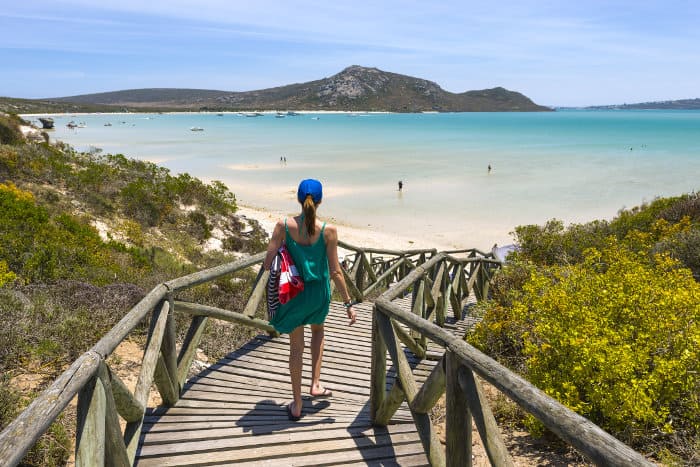
South Africa is on the hit-list for many global travelers, and it’s easy to understand why. The country boasts breathtaking coastlines , wildlife-rich safaris , and unbeatable local hospitality .
There are countless exciting things to do in South Africa , and the experience begins with booking a ticket.
Visas to visit South Africa from America are only needed if your stay extends past 90 days . There are 52 countries that fall into this category of not needing a visa to visit South Africa.
- Duration of stay permitted visa-free – 90 days
- Additional notes – you’ll need a yellow fever certificate if traveling from (or through) the yellow fever belt of Africa or South America
Egypt visa requirements
If you’re a history-lover, then this is a fantastic country to visit. There are so many things to do in Egypt, ranging from visiting the pyramids to scuba diving and sandboarding.
Unlike South Africa, U.S. citizens do need a visa to enter Egypt . Luckily, these visas are both easy to get and affordable in cost. Upon arrival, officials will issue a single-entry, 30-day visa for a small cost of $25 .
If you plan to leave and visit neighboring countries before returning to Egypt, then a multi-entry visa is available for $60 .
This visa, along with a passport with six-month validity, will have you riding camels in the desert in no time.
- Cost of visa – $25 for a single-entry visa
- Duration of stay permitted – 30 days
- Additional notes – you’ll need a yellow fever certificate if you’ve traveled through high-risk countries
Apply for your Egyptian visa here .
Visa for a Moroccan adventure

Morocco combines regal elegance with natural wonder. It meets the expectations of history-lovers, adventure-junkies, and holiday-seekers among others. From the medieval city of Fez to the bustling streets of Marrakech, Morocco is a popular African country to visit.
Another reason that Morocco is such a popular tourist destination is because of its visa-free policy for American citizens for up to 90 days.
All you need to enter the gateway to Africa is a passport with six months validity .
- Additional notes – Extending past your 90 days visa-free stay requires you to appear before a judge – so best to get your itinerary in order
Tanzania visa upon arrival
Many travelers looking to get a visa for Africa have Tanzania on their itinerary. The East African country is home to the exclusive Katavi National Park as well as the tropical island of Zanzibar .
It’s the perfect destination for travelers seeking a rustic, idyllic getaway as well as a close relationship with nature. But in order to do so, U.S. citizens must attain a travel visa .
You can buy these visas on arrival . We suggest you use cash as the electronic payment methods can cause a hassle. Alternatively, you can apply for a travel visa online beforehand.
- Cost of visa – $100 (for U.S. nationals)
- Duration of stay permitted – Three months for single-entry, up to 12 months for multiple-entry visas
- Additional notes – you’ll need a yellow fever certificate if your itinerary has taken you through one of the countries where the disease is an epidemic
Visa for Mauritius
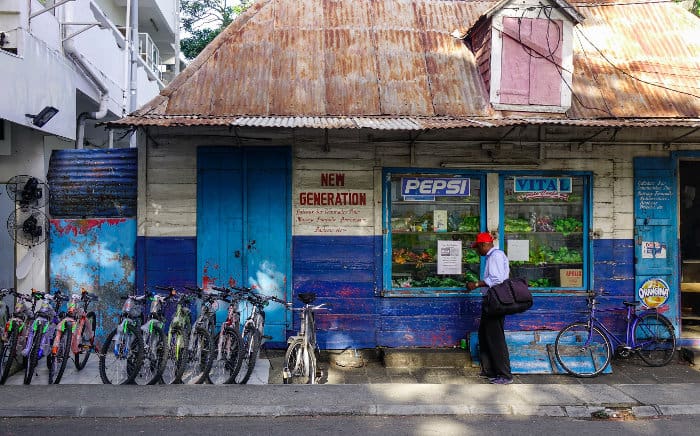
Mauritius is high on the list as one of the safest countries in Africa . The island welcomes travelers with open arms, beautiful beaches, and chilled cocktails.
Mauritius is full of natural beauty , oceanside adventures, and luxury resorts. It offers a truly unique African experience.
Travelers do not require a visa for entry , only a valid passport, and proof of a return ticket.
- Duration of stay permitted visa-free – 60 days
- Additional notes – Travelers require a yellow fever certificate if having experienced recent travel to risk areas
Kenya visa requirements
A popular East African travel visa is one that allows entry to Kenya. Known to be home to some of the best safari destinations , Kenya is a very popular travel destination for nature-lovers .
The coastal country has a varied landscape of savannah, lakelands, the Great Rift valley, and mountain highlands. What more could you possibly want?
To enjoy the beauty of Kenya, travelers need a tourist visa . Single-entry visas are available upon arrival at the airport and online. You’ll need to start your applications for multi-entry visas before arrival.
- Cost of visa – $53
- Duration of stay permitted – 90 days
- Additional notes – you’ll need a yellow fever certificate if you have traveled through high-risk areas
Apply for your Kenya visa here .
Visa for Ethiopia

Located in the Horn of Africa, Ethiopia is full of must-see attractions that keep travelers coming back for more. The country experiences tropical conditions and offers tourists an unforgettable getaway.
All foreign travelers , including U.S. citizens and excluding citizens of Kenya and Djibouti, need a visa for entry. These single-entry visas are easy to get online, but a multi-entry visa requires a visit to the consulate.
The price of the visa will vary depending on how long you want to remain in the country.
- Cost of visa – $52 or $72
- Duration of stay permitted – 30 days or 90 days
- Additional notes – travelers must produce a yellow fever certificate upon request
Apply for your Ethiopia visa here .
Tunisia travel requirements
Tunisia is not always the first African country on one’s “to travel” list, but it should be! The capital, Tunis, and the northern part of the country are safe for travel and offer rich rewards for those who visit.
Discover special wildlife , such as the African deer , relax at resorts and uncover the fascinating history of the area.
U.S. citizens do not require a tourist visa to enter Tunisia for stays of less than 90 days. However, they do need a passport with six months’ validity.
- Additional notes – Tourism in Tunisia has been neglected over the years but is increasing noticeably, bringing in an impressive $1.36 billion in 2018
Africa visa for Zimbabwe

Zimbabwe is one of the top countries to visit in Africa. Although it has a history of political unrest, it makes up for this concern with incredible safari destinations and encounters with nature.
Zimbabwe tourism access is determined through categories. U.S. citizens fall into category B which allows entry after receiving a visa on arrival. All that you need is a passport, return ticket and adequate funds to support your stay.
The price of the visa varies depending on your duration of stay, and whether you require single-entry or multiple-entry.
Top tip : Neighboring countries Botswana and Zambia offer great safari day trips, and so a multiple-entry visa is worth the extra cost.
- Cost of visa – $30, $45 or $160
- Duration of stay permitted – 30-day single-entry visa, 45-day double-entry visa or 12-month multiple-entry visa
- Additional notes – Zimbabwe has a high case number for Tuberculosis so be cautious
Uganda visa for entry
Uganda is a truly special destination to visit. The country offers a variety of unique and memorable experiences, including a gorilla encounter in the wild .
Uganda boasts 60 conservation-protected areas that are home to large populations of critically endangered species. Border control is one of the ways that this conservation remains in check.
All U.S. passport holders require a visa prior to arrival . This is an easy online process.
- Cost of visa – $51,50
- Additional notes – Uganda is a yellow fever area and so travelers need a certificate of immunization
Apply for your visa for Uganda here .
Secure Your Ticket for an African Adventure
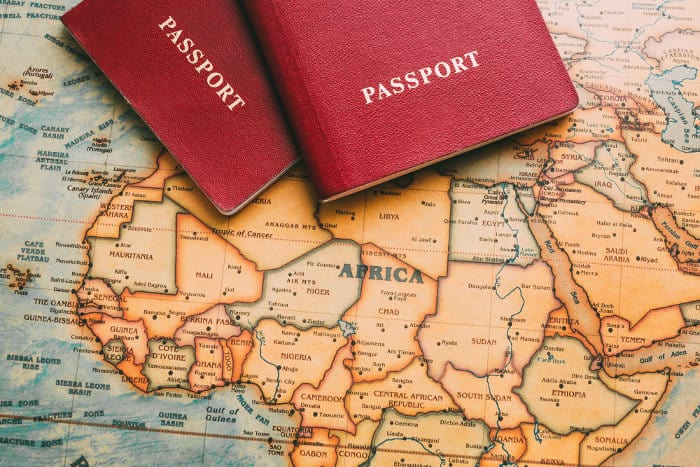
Africa visa requirements vary depending on which country you choose to visit, as well as your destination of origin.
Overall, most African countries make access pain-free and affordable. If you are planning a trip across Africa, then you can even apply for a grouped visa, such as the East Africa visa which allows access to Rwanda, Kenya, and Uganda.
The world is yours to explore , and Africa is welcoming you with open arms!
About The Author
Editorial Team
Related posts.
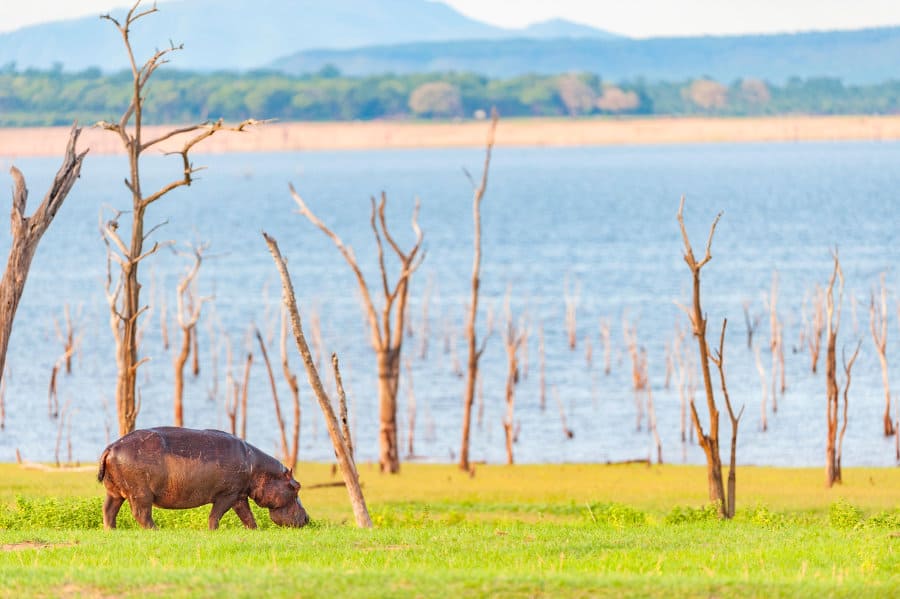
African safari attractions in numbers
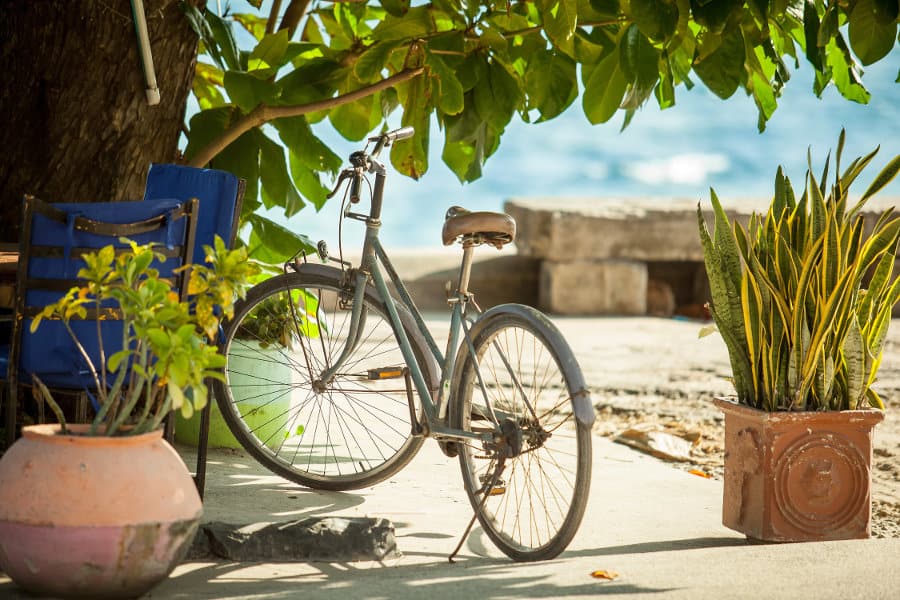
Is Zanzibar in Tanzania?

Most popular Africa travel & safari forums
2 thoughts on “need a visa for africa here’s all you need to know”.
Very interesting site. Nice intelligent information! 🙂 Is there any way of applying for a visa for more than one country as I’m hoping to take in more than one country on safari? Starting in Kenya.
Thanks for your question.
Sure, this is definitely possible, though conditions may vary based on nationality and destination.
Many people can get their visa upon arrival.
For more info, feel free to check out our “ Practical A-Z Guide to Going on Safari ” (refer to section “V” for Visas).
I hope this helps.
Leave a Comment Cancel Reply
Your email address will not be published. Required fields are marked *

Apply for a visa
If you want to visit South Africa, you must produce a valid visa before you can enter into the country. A visa will be issued for a visit for tourism or business purposes and is valid for a period of 90 days.
Some countries are exempted from visa control, which means that citizens from those countries do not need a visa to visit South Africa.
Visas are not issued at South African ports of entry, and airline officials must insist on visas before allowing passengers to board. If you arrive without a visa, immigration officials are obliged to put you onto a flight back to your home country. Depending on your intended visit, you can apply for a Visitor’s Visa or a Transit Visa. Find out more about the:
- requirements for a visa
- types of visas
- countries exempt from South African visas
or contact the Department of Home Affairs .
Share this page


The Africa Visa Guide
By: Author Zachary Friedman
Posted on Last updated: February 13, 2024
Categories Africa , Visas and Borders
Home » Africa » The Africa Visa Guide
African visas can be a bit tricky. They’re expensive, policies change often, and some require extensive paperwork to obtain. To add to that, visa policies often aren’t completely clear. You may read one thing online then the embassy tells you something completely different. This Africa visa guide outlines the process of researching and obtaining visas. I also include a few tips to make the border crossing process as smooth as possible.
In the second half of this guide, I outline the process of obtaining some of the more popular African visas in East and Southern Africa. Each entry includes info on visa availability, price, and requirements. I will try to keep this list up to date as I continue my travels. I travel on a US passport but will try to include info for other nationalities as well.

Where to Apply for Your Visas
Where you apply for your African visas depends on your destination country, your nationality, your route, and the port of entry where you plan to enter the country. Before you leave on your trip, you must research each specific visa that you’ll need to obtain. There are four different places that you may need to apply.
African Visa on Arrival at the Border or Port of Entry
Many African countries offer a visa-on-arrival system (VOA) where you don’t have to arrange anything in advance. Just show up at the airport or land border, fill out a form, pay the fee, and get your visa. This is the best and cheapest option if it is available.
Before showing up, make sure that the visa on arrival is available for your nationality. Also, make sure that it is offered at the port of entry where you plan to arrive. Some countries only offer visas on arrival at larger border crossings. Some countries, like Ethiopia, only offer visas on arrival the international airport.
African E-Visas Online
Many African countries are moving toward an online visa system. Because many of the systems are new, they occasionally have a few quirks. For the most part, these work smoothly and efficiently.
In order to get your visa online, you’ll usually have to submit a scanned copy of your passport, yellow fever card, and a passport photo along with your completed visa application. You pay the visa fee by credit or debit card.
Depending on the country, you may need proof of onward travel, bank statements, or a letter of invitation as well. Check the requirements before applying so you know that you have everything that you need. After you pay, there are no refunds if you make a mistake.
At the Country’s Embassy in a Nearby or Bordering Country
This is the best option if you’re traveling overland and a visa on arrival or e-visa isn’t available. Sometimes, you’ll have to make a trip to your destination country’s embassy in a nearby or bordering country to obtain your visa in advance.
If this is the case, it’s a good idea to do a bit of research to find where is the cheapest and easiest place to apply for your visa. For whatever reason, sometimes different embassies for the same country have different visa prices and requirements. This is really only a problem in a few places in West and Central Africa. You may be able to save some money and time this way.
At the Country’s Embassy in your Home Country
A handful of African countries require that you apply for your visa through the embassy in your home country. This is the most frustrating and annoying for planning.
Before you leave for your trip, you should research the availability of each Africa visa that you will need. If it’s not available on arrival or at a nearby embassy, you should get it before you leave.
An example of a country with this policy is Nigeria. These days, they require that you get your visa in the country where you are a resident. I have read about a few travelers getting visas in the Nigerian embassy in Cotonou, Benin, and Niamey, Niger, but I’m not sure if this is reliable information.
Ethiopia has a similar policy. It is difficult to get a visa in Kenya or Sudan. Generally, you must get the visa in your home country or fly in to get a visa on arrival.

Common African Visa Requirements
Every country has a slightly different visa process. Sometimes all you need is your passport. Sometimes you need some additional support documents. Common document requirements for African visas include:
- Passport- This is obvious. Usually, your passport needs to have at least 6 months of validity from the date that you plan to enter the country. Most countries require that you have 1-2 completely blank pages to place the visa.
- Yellow fever vaccine certificate- This is an entry requirement for many African countries. Carry the original and a few copies.
- Visa application- These are usually handed out for free at immigration or embassies.
- Passport photos- Some countries require 1-2 recent passport-sized photos. These should be different than the photo that is in your passport. You can save money by making your own. For help, check out my guide: How to Take Your Own Passport Photo for Free.
- Letter of invitation- A handful of African countries require that either an individual or business invites you into the country. They are usually required to take financial responsibility for you. You can purchase a letter of invitation from travel agencies in the country where you are applying for the visa. A friend or family member who is a citizen can also invite you.
- Proof of onward travel- Many African countries require that you show a valid ticket out of the country when applying for your visa. This is most common for e-visas or when applying at an embassy. Usually, when you get a visa on arrival, you can just say that you are exiting overland. For more info, check out my guide: 8 Ways to Provide Proof of Onward Travel.
- Bank statement- Some African countries require that you prove that you have sufficient funds to support yourself for the duration of your stay. In this case, print out a recent bank statement from your account with around $5000. Make sure the statement shows your name.
You won’t need all of the above items for most African visas. Usually, all you need is your passport and yellow fever certificate. Be sure to check the visa requirements before applying and make sure you have all of the required documents in order before you apply.
Paying for African Visas
One major expense of traveling in Africa is the cost of visas. Almost every country charges $50-$100 for a simple single entry visa that is valid for 30-90 days. Costs add up quickly. During my trip through 11 countries, I spent over $600 in visas alone.
In East and Southern Africa, most visas are available on arrival. Fees are paid in US dollars only. I recommend you carry clean, new bills issued after 2004 in denominations of $20, $50, and $100. Small bills and older bills are generally not accepted at borders.
In West and Central Africa, you’ll usually have to obtain visas in embassies as you travel. These are usually paid in US dollars or Euros. In some cases, you can pay in West African CFA Francs.
For visas that you obtain in your home country, you’ll usually have to pay by check or card. For e-visas that you obtain online, you’ll usually pay by credit or debit card.

African Visa Requirements by Country
In this section, I’ll outline the availability, costs, and requirements for specific African visas. This guide focuses on East and Southern African visas ordered in alphabetical order.
Botswana Visa
No visa is necessary for most nationalities. You are permitted to stay for up to 90 days in a 12 month period.
Ethiopia Visa
The visa available on arrival at the international airport in Addis Ababa. I paid $50 for a single-entry 30-day visa. A 90-day single entry visa is also available for around $70. Multi entry visas may be available at a higher cost if the immigration official will sell them to you.
If you plan to enter Ethiopia overland you must organize your visa in advance. You can try to get the visa at the Ethiopian embassy in Khartoum or Nairobi but I have heard of some travelers being refused depending on nationality.
As much as I hate organizing visas in advance, this is one visa that I would recommend getting in your home country if you are planning to enter overland. If you can’t get the visa, you may need to fly into Addis Ababa.
- Touring The Omo Valley Independently and on a Budget
You must apply for your Kenya visa online in advance. It costs around $50 for 90 days for most nationalities. You can also get the East Africa tourist Visa for $100. This visa is valid for entry to Kenya, Rwanda, and Uganda.
The last time I traveled to Kenya, the visa was available at the border on arrival . This was recently discontinued. Now you must apply in advance.
I crossed into Kenya from Ethiopia at the Moyale border. The crossing was fast and hassle-free.
- 13 Best Things to Do in Nairobi
- Why Nairobi is the Best African City
- How to Safari in Kenya for Less than $200: Maasai Mara on a Budget
- How to Visit Kibera Slum Independently Without a Tour
Malawi Visa
Malawi recently changed their visa policy. It was free up until a year or so ago. Now, the visa is available at the border for $75 for most nationalities. It is valid for 30 days.
I entered from Tanzania in the north. The process was easy and fast.
- How to Visit Beautiful Lake Malawi
Namibia Visa
The visa is available for free at the border for most nationalities. It is valid for 90 days in a 12 month period.
- How to Visit Sossusvlei, Namibia Independently and on a Budget
Rwanda Visa
Visa available on arrival at the border. It cost $30 for a 30-day single-entry visa . One thing to note about entering Rwanda is that p lastic bags are illegal and they will be confiscated at the border.
- How to Visit Beautiful Lake Kivu
South Africa Visa
No visa is required for most nationalities for stays up to 90 days.
This visa is a bit of a hassle. European, Canadian, Australian, and most Asian passport holders can get the visa in Aswan, Egypt at the Sudanese consulate. You will need to bring 2 passport photos and a photocopy of your passport and Egyptian visa. They will supply you with the visa form. The visa takes between a couple of days and a week to process. The cost is $50 for one month single entry.
Sudan Visa for US Citizens
Americans can get the visa in Aswan as well but it requires an extra step. You must have a contact in Sudan to submit your visa application in Khartoum for you. Most likely you will also need a letter of invitation and hotel reservation.
The easiest way to do all of this is through a travel agency. You can also hire a fixer if you can find one. You will be required to mail the application, your passport photos, and possibly your passport to Khartoum for processing. They may ask you to book a tour as well if you go through a travel agency.
Once the application is approved, they will send a confirmation to the consulate in Aswan. You can then go to the consulate to get your visa once they return your documents. The cost for the visa is $50-$100 plus whatever the travel agency or fixer charges plus the cost of a tour.
All in, this will probably end up costing $200-300. I know, this is a major hassle and expense and will require you waiting in Aswan for up to a couple of weeks.
Tanzania Visa
Visa available on arrival at the border. For Americans, it costs $100 and is multi-entry valid for 1 year. This is the only option for Americans. Visas for most other nationalities cost $50 for a single-entry 90-day visa. They will ask to see a yellow fever certificate.
- Maasai Mara Vs. Serengeti: Where is the Better Safari?
- My Phone Was Pickpocketed in Tanzania and I got it Back!
- Why I’ll Never Return to Tanzania
Uganda Visa
This visa must be arranged online in advance. It is not available on arrival at the border. The visa costs $50 plus a couple of dollars for a processing fee. You need to attach a copy of your yellow fever vaccine certificate and a photo.
They do check the attachments. One of mine didn’t upload properly and I needed to resend it. Luckily, I didn’t have to pay again. You must print out the visa acceptance letter once approved and present it at the border.
- 5 Incredible Things to Do in Uganda
- How to Visit Beautiful Lake Bunyonyi
- How to Visit Sipi Falls Independently Without a Tour
- Is Uganda Safe? Avoiding Crime and Scams
- Living in Uganda as an Expat: Pros and Cons
Zambia Visa
Visa available on arrival at the border. I entered from Malawi. The cost was $50 for a single entry. Some European nationalities can enter for free. For example, my Irish friend didn’t have to pay.
Zimbabwe Visa
Visa available at the border. Costs vary depending on nationality. European, Canadian, American, Chinese, and UK all have different visa charges. I believe I paid $30 for a single entry with my US passport.
- How to Travel by Train from Victoria Falls to Bulawayo or Harare, Zimbabwe

African Visas Valid for Entry to Multiple Countries
In Africa, there are two instances where several bordering countries have agreed on a single tourist visa which allows entry into each country. These can save you money, time, and the hassle of having to apply for multiple African visas. Multiple country visas in Africa include:
East Africa Tourist Visa (EATV)
This multiple country African visa is valid in Kenya, Uganda, and Rwanda. It costs $100 and is valid for 90 days. During these 90 days, you can make multiple entries into each country. If you leave Kenya, Uganda, or Rwanda, the visa is void. If you wish to return, you’ll have to apply for a new visa. This visa cannot be extended.
You can apply for the East Africa Tourist Visa online and receive an e-visa. There is no need to send your passport or visit the embassy to get this visa. You must, however, apply through the embassy of the country that you plan to visit first. For example, you can’t apply for your visa through the Uganda embassy then fly into Nairobi to start your trip.
At this time, the East Africa Tourist visa is only available on arrival in Kenya. This may change soon as Kenya moves toward an e-visa system. You can’t apply for the East Africa Tourist visa on arrival in Uganda or Rwanda. If you plan to visit either of those countries first, you must apply online in advance.
If you want to stay in East Africa for longer than 90 days, you’ll want to get your visas separately. For example, on separate Kenya and Uganda visas, you can stay 90 days in each country. You can also extend the visas. With a Rwanda visa, you can stay 30 days. You could probably spend over a year in the region. The East Africa Tourist Visa is mostly about convenience. It only saves you $30 over the price of buying the visas separately.
Visa Touristique d’Entente (VTE)
On paper, this multiple country West Africa tourist visa looks great. It costs 100 euro and allows you 90 days to visit Benin, Burking Faso, Ivory Coast, Niger, and Togo. You are allowed one entry into each country. Once you leave the Visa Touristique d’Entente countries, the visa is void.
This sounds like an excellent deal. You’d probably spend 3 times that paying for individual visas for each of those countries. Not to mention the time it would take to arrange each visa. Unfortunately, the Visa Touristique d’Entente is less useful these days. The latest I’ve heard, it is no longer accepted in Ivory Coast, Niger, and Benin. I believe the reason is that these countries have begun an e-visa program. Before applying for this visa, do your research. It may not even exist anymore.
A Few African Visa Tips
- Always make a copy of your visa if you obtained it in advance- This can come in handy if your passport is lost or stolen. You can prove that you were in the country legally.
- Carry digital and physical copies of all of your documents- When applying for visas, you may need copies of your passport, yellow fever vaccine, bank account statements, passport photos, etc. Copy and scan them before you leave home. You need digital copies to apply for e-visas.
- Make sure you give yourself enough time to apply for all of the visas that you need- Some African visas take multiple weeks to process. It can also take you time to gather all of the documents that you need. You don’t want to miss an expensive flight because you didn’t get your visa in time.
- Double-check the visa policy before going to the border – Rules change often. You don’t want to take a 20-hour bus ride to the border then get turned away because visa on arrival isn’t available when you thought it was.
- Try to avoid multiple entries on your itinerary- African visas are expensive. You’ll save money this way.

Final Thoughts
As you can see, many African visas are easily available on arrival at the border, through an e visa process, or at the embassy in a nearby country. Having said this, there are a few exceptions of visas that must be obtained in your home country.
Before your trip, you should research every African visa that you need and learn how and where to get it. Remember that policies change often and without notice.
Please comment below if you know of any changes in visa policy. I would like to keep this African visa guide as up to date as possible.
For a list of all of my step-by-step bus guides, check out The Ultimate African Bus Guide .
Zachary Friedman is an accomplished travel writer and professional blogger. Since 2011, he has traveled to 66 countries and 6 continents. He founded ‘Where The Road Forks’ in 2017 to provide readers with information and insights based on his travel and outdoor recreation experience and expertise. Zachary is also an avid cyclist and hiker. Living as a digital nomad, Zachary balances his professional life with his passions for hiking, camping, cycling, and worldwide exploration. For a deeper dive into his journey and background, visit the About page. For inquiries and collaborations, please reach out through the Contact page. You can also follow him on Facebook.
Sharing is caring!
Sign me up for the newsletter!
Sunday 25th of October 2020
Thank You very much for such Detailed Information . One of the Best Blogs I have come across on Africa providing Factual Info.Helpful Indeed .
Wednesday 1st of May 2019
This will be my gotoguide while travelling across Africa . I cantbemuch happier readingyour blogs . It’s so helpful .
Friday 18th of January 2019
thank you so much for all those information, it's so hard to find anything on the internet about backpack's travel in Africa !! Your blog is excellent, keep going :) !!
wheretheroadforks
Thank you! Glad you found the info useful
- downloadable forms
- where to file your application
- schedule of fees
- time frames
- announcements
- Identity Document
- Visitor Visa
- Temporary Residence Permit
- Permanent Residence
- Citizenship
- Birth Registration
- Full Birth Certificate
- Marriage Certificate
- Death Certificate
- Getting Married in South Africa
- Divorce Decree
- Personal Amendment
- Downloadable Forms
- Schedule of Fees
- Where to file your application
- Timeframes for services
HOLIDAYS OBSERVED
Please check the Missions' list of holidays that will observed this year.
Write your email address on the upper right hand corner of your application form to receive updates on the status of your application.

SOUTH AFRICAN MISSIONS IN THE UNITED STATES:
For residents of Alaska, Arizona, California, Colorado, Hawaii, Idaho, Montana, Nevada, New Mexico, Oregon, Utah, Washington and Wyoming including the US Territory of Guam:
The South African Consulate General in Los Angeles, CA 6300 Wilshire Boulevard, Suite 600 Los Angeles, CA 90048 Tel. (323) 651-0902 Emergency: (323) 244-0360 Email Website:
For residents of Connecticut, Delaware, Kentucky, Maine, Massachusetts, New Hampshire, New Jersey, New York, North Carolina, Pennsylvania, Rhode Island, South Carolina, Tennessee, Vermont West Virginia, British Virgin Islands, St Martins, Bermuda and Cayman:
For residents of Alabama, Arkansas, District of Colombia, Florida, Georgia, Illinois, Indiana, Iowa, Kansas, Louisiana, Maryland, Michigan, Minnesota, Mississippi, Missouri, Nebraska, North Dakota and South Dakota, Ohio, Oklahoma,Texas, Virginia, Puerto Rico, Virgin Islands and Wisconsin:
South African Visitor's Visa
Due to COVID-19 pandemic, visits to our offices for civic services are strictly by appointment only . Applicants are reminded to kindly ensure they make an appointment before presenting at the Embassy/Consulate General.
PLEASE NOTE : IN ORDER TO COMPLY WITH REGULATION 2(1) (A) OF THE IMMIGRATION ACT OF 2014, ONLY MACHINE READABLE TRAVEL DOCUMENTS (MRTDs) WILL BE ACCEPTED ON SUBMISSION OF VISA APPLICATIONS AND AT PORT OF ENTRY. THEREFORE, NO EXTENDED PASSPORTS WILL BE ACCEPTED.
Duration and Purpose of Stay
U.S. citizens (U.S. passport holders) visiting the Republic of South Africa for ninety (90) days or less for tourism / business purposes do not need visas.
U.S. green card holders (non-US passport holders) and nationals of other countries must check the list of visa exempt countries to see if they need to apply for visas. If the names of their countries are not listed, it means they need to apply for visas. There are also countries that are visa exempt if applicant is traveling to South Africa for a period of 30 days or less.
There are countries which are required to apply for visas but are exempt from visa fees, e.g. India, Colombia, Mexico, etc. Please refer to the list of countries that pay for visa and if your country is not listed it means you do not need to pay for visa.
Note: If your visit would exceed ninety days or if you want to travel to South Africa to study or to work, you will need to apply for a temporary residence visa instead of a visitor's visa. Requirements for a temporary residence visa are not the same with visitor's visa.
Yellow fever certificate is required only if the applicant is passing through yellow fever belt area before entering South Africa.
Foreigners who wish to visit South Africa must have passports / travel documents valid for thirty (30) more days after the intended return date from South Africa. The passport must contain at least two (2) unused (blank) pages labeled Visa when presented at the Embassy or Consulate; One page is for affixing the visa or permit at the Embassy/Consulate and the other page is for endorsement of entry/departure stamp by the South African Immigration Services. Note: Visa pages referred to above do not include pages reserved for Endorsements , Amendments or Observations .
What is a visa?
A visa is an authorization only to the holder to proceed to the Republic to report to an immigration officer at a port of entry for the purpose of being examined as to his/her ability to comply with the (entry) requirements of the Immigration Act, 2002 (Act No. 13 of 2002), as amended. Possession of a visa does not guarantee the holder automatic admission into the Republic of South Africa.
What visa is needed to conduct short term or urgent work?
All foreigners who intend to conduct short term or urgent work in the Republic of South Africa, including, but not limited, to service technicians, trainers / instructors and film crews, for a period not exceeding three (3) months must hold authorization to conduct work in terms of Section 11(2) , which must be applied for and issued at a South African foreign embassy, before traveling to the Republic of South Africa.
- Section 11(2) authorization to conduct work on a visitor’s visa
- Service technicians (installation, repair and maintenance work)
- Commercial stills and film producing industry
If approved, the authorization to work shall not be extended beyond the validity period of the visa issued. On first issue, a section 11(2) visa may be issued for not more than 3 months. Where a further extension is required within the Republic an extension may be allowed for a final period not exceeding three months.
Any person who has been issued with a Section 11(2) visa and had it extended for another 3 months shall not qualify for a Section 11(2) visa within the same calendar year. If a visa was issued with dates that overlap into a new calendar year, the dates falling into the new calendar year will be calculated as part of the new calendar year.
Applicants should be informed, and reminded that a Section 11(2) is not a work visa and should not be used for an ongoing regular work activity. In the case of technicians for Original Equipment Manufacturers (OEMs) who are required to travel to RSA on a year on year basis to maintain and repair equipment, such applicants will have to re-apply for authorization each year. Back to back Section 11(2) applications within the same year by the same applicant at the Mission will not be accepted. Within the Republic, extensions or renewals not exceeding 3 months will only be accepted once per calendar year.
Read more about Section 11(2) .
Can a visa be issued for an internship?
No. The Immigration Act, as amended, makes no provisions for foreigners to undertake internships at companies and organizations in the Republic of South Africa. Therefore, visas may not be issued to such foreigners; including foreign students whose studies prescribe an internship.
Requirements:
- Port of Entry Visa (Tourist Visa) - 90 days or less
- Section 11(2) - Short term or urgent work in the Republic of South Africa
- Port of Entry Visa (Tourist Visa) - More than 90 days
- Visa to attend Business Meetings - 90 days or less
- Visa to Conduct Research - Up to 3 years
- Visitor's Visa Section 11(6) for Spouse of a Citizen or Permanent Resident
- Visa Exempt Countries
- Countries whose nationals are subject to visa fees
- Where to file your Application
- Updated schedule of fees
Rev. Thursday, 23-Mar-2023

Abbas Africa
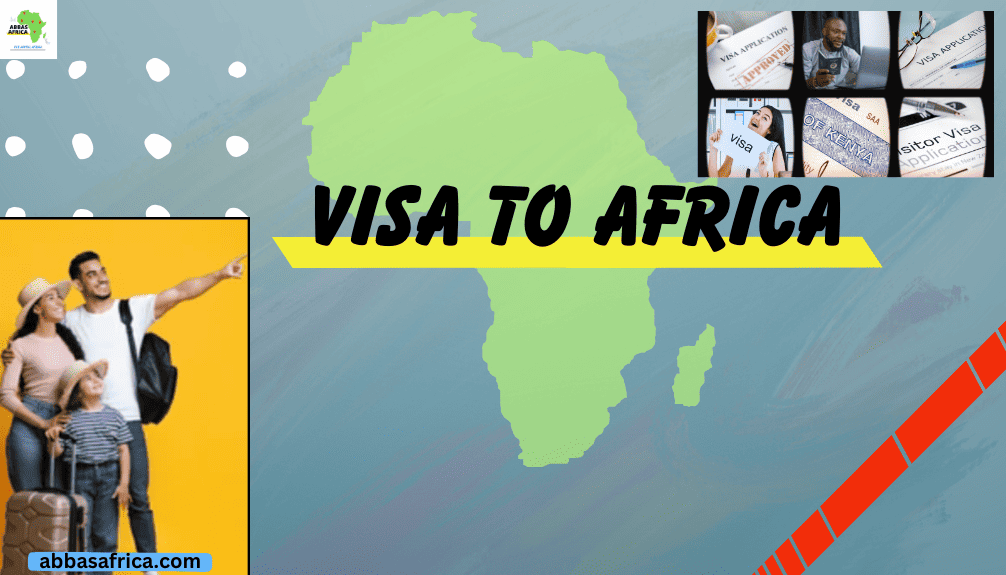
Visa to Africa: Essential Information for Travelers
Africa is a continent of diverse cultures, stunning landscapes, and unique experiences that beckon travelers from around the world.
However, before embarking on an African adventure, travelers need to understand the essential information regarding visas. Navigating the visa process can be a daunting task, with various types of visas, requirements, and potential pitfalls to consider.
In this discussion, we will delve into the world of visas to Africa, uncovering the main types of visas, common requirements, reasons for rejection, and tips for a smooth application process.
So, whether you are planning a safari in Kenya, exploring the pyramids of Egypt, or immersing yourself in the vibrant markets of Morocco, join us as we unravel the essential information for travelers seeking visas to Africa.
Key Takeaways
- Visas for Africa are necessary for regulating international travel and ensuring national security.
- There are different types of visas for African travel, including tourist, business, and student visas.
- Visa requirements for Africa include common elements such as application forms, supporting documents, and fees.
- It is important to research and understand specific visa requirements for each country in Africa.
What Is Visa?
A visa is an official document issued by a country that grants permission for a foreign national to enter, stay, or transit through its borders for a specific period. It serves as a crucial tool in regulating international travel and ensuring national security.
Visas are typically affixed to a traveler’s passport and contain important information such as the purpose of the visit, duration of stay, and any restrictions or conditions imposed by the issuing country.
Obtaining a visa requires applicants to meet specific requirements set by the country, which may include providing supporting documents, completing application forms, and paying applicable fees.
Travelers need to familiarize themselves with the visa requirements of their destination country to ensure a smooth and hassle-free journey.
What Are the Main Types of Visas for African Travel?
There are several main types of visas available for travelers visiting Africa. These visas vary depending on the purpose and duration of the visit.
Here are three common types of visas for African travel:
Tourist Visa: This visa is for travelers who plan to visit Africa for leisure or recreational purposes. It allows individuals to explore popular tourist destinations, experience cultural activities, and enjoy the natural beauty of the continent.
Business Visa: For those traveling to Africa for business purposes, a business visa is required. This visa allows individuals to attend meetings, and conferences, or engage in business-related activities such as negotiations or market research.
Student Visa: Students who wish to study in Africa need a student visa. This visa allows individuals to enroll in educational institutions, pursue academic programs, and gain knowledge and skills in their chosen field.
These visas ensure that travelers can enter Africa legally and enjoy their time on the continent while respecting local laws and regulations.
What Are the Common Visa Requirements for Africa?
When planning a trip to Africa, it’s important to understand the common visa requirements that vary across different regions. These requirements can differ based on factors such as country of origin, purpose of travel, and duration of stay.
To help you navigate through the visa process, here are three key points to consider:
Visa application: Research the specific visa requirements for the country you plan to visit, including the application form, supporting documents, and fees.
Validity and duration: Take note of the validity period of your visa, which determines the time frame in which you can enter the country. Also, consider the duration of stay permitted, as overstaying your visa can result in penalties or even deportation.
Entry and exit requirements: Some countries may require proof of onward travel, vaccination certificates, or a return ticket. It’s important to familiarize yourself with these additional requirements to ensure a smooth travel experience.
How Do Visa Requirements Vary Across Different African Regions?
Visa requirements in Africa vary across different regions, presenting travelers with a diverse set of common rules and regulations to navigate.
While some African countries offer visa-free entry or visa-on-arrival for certain nationalities, others require travelers to obtain visas in advance.
The African Union’s efforts to promote regional integration have led to the establishment of regional economic communities, such as the East African Community and the Economic Community of West African States. These communities have implemented visa liberalization policies that allow for easier movement of people within their respective regions.
For example, citizens of member states can travel freely within the East African Community using a regional passport.
However, it is important to note that visa requirements can still vary within these regional blocs, so travelers must check the specific requirements for each country they plan to visit.
Why Do Travelers Need Visas to Visit Africa?
To explore the diverse and captivating countries of Africa, travelers must obtain a visa, a crucial document that ensures a smooth and lawful entry into the continent. Africa is a continent that consists of 54 unique and independent countries, each with its immigration policies and regulations.
These visas are necessary to maintain order, control immigration, and protect the interests of both the host country and the traveler. Visas serve as a way for countries to verify the traveler’s identity, purpose of visit, and length of stay to ensure that they comply with immigration laws. Additionally, visas allow countries to manage security concerns and prevent illegal activities, such as human trafficking and drug smuggling.
While the visa application process may seem daunting, it is an essential step in exploring the rich cultural heritage and natural wonders that Africa has to offer.
How Can You Obtain a Tourist Visa for Your African Adventure?
Obtaining a tourist visa for your African adventure requires careful planning and preparation.
To start, you need to determine the specific visa requirements for the country you plan to visit. This may include researching the visa application process, fees, and any additional documents needed.
Additionally, it is important to find out if there are any specific vaccination requirements for obtaining a visa to Africa.
How to Determine the Specific Visa Requirements for the Country That You Plan to Visit?
When planning your African adventure, it is crucial to thoroughly research and understand the specific visa requirements for the country you intend to visit. Each African country has its own set of visa regulations, so it is essential to determine the specific requirements before you embark on your journey.
To determine the visa requirements, you can start by visiting the official website of the country’s embassy or consulate in your home country. These websites usually provide detailed information about the visa application process, required documents, and fees. Additionally, you can also contact the embassy or consulate directly to seek clarification or ask any specific questions you may have.
It is important to note that visa requirements can change, so it is recommended to check for any updates regularly. By understanding and fulfilling the specific visa requirements, you can ensure a smooth and hassle-free African adventure.
What Documents Do I Need to Prepare When Applying for an African Visa?
To obtain a tourist visa for your African adventure, it is important to gather and prepare the necessary documents.
Here are three essential documents you need to have to apply for an African visa:
Valid Passport: Make sure your passport is valid for at least six months beyond your intended stay in Africa. It should also have at least two blank pages for visa stamps.
Visa Application Form: Fill out the visa application form accurately and completely. Be sure to provide all the required information, including your travel dates, purpose of visit, and accommodation details.
Proof of Travel Itinerary: Provide a copy of your round-trip flight itinerary or confirmed travel bookings. This includes flight reservations, hotel reservations, and any other travel arrangements you have made.
Are There Any Specific Vaccination Requirements for Obtaining a Visa to Africa?
To ensure a smooth process in obtaining a tourist visa for your African adventure, it is important to be aware of any specific vaccination requirements.
Africa is a diverse continent, and different countries may have different health regulations. Some African countries require certain vaccinations to enter, especially if you are traveling from a region with a high risk of certain diseases like yellow fever or malaria.
It is crucial to research the specific vaccination requirements for the country you plan to visit and make sure you are up to date with all necessary vaccinations. This not only ensures your safety but also helps prevent the spread of diseases.
Consulting with a healthcare professional or visiting a travel clinic is recommended to get accurate and up-to-date information on the required vaccinations for your African adventure.
What Is the Average Cost of African Visas?
The average cost of African visas varies depending on the country and the type of visa. Here are some examples: Nigerian Tourist Visa: The cost varies based on your country and currency, but on average, it will cost between $160 and $180.
Kenya Multiple Entry Visa: It attracts a $10 processing fee and a $1 service charge. Once approved, you will be required to pay a $100 application fee.
East African Tourist Visa: This joint tourist visa for Uganda, Kenya, and Rwanda costs $100. It allows multiple entries for tourism purposes within the three countries and is valid for 90 days.
Here’s a general idea as well: Tourist visas: Typically range from US$50 to US$150. Business visas: Often cost US$100 to US$250. Visa processing fees: May add US$20 to US$50 to the cost. It’s important to note that visa fees are subject to change, and additional bank charges may apply. Always check the most up-to-date visa fees and requirements with the official embassy or consulate of the country you plan to visit. So the average African visa cost is approximately $150.
Additionally, it is crucial to be aware of any additional fees or requirements for multiple-entry visas, as these can also affect the overall cost of your travel documentation.
Are There Any Additional Fees or Requirements for Multiple-Entry Visas to Africa?
Multiple-entry visas to Africa may require additional fees and meet certain requirements, which vary depending on the country and the purpose of travel. Travelers need to be aware of these potential costs and conditions before applying for a multiple-entry visa.
Additional fees can include processing fees, visa fees, and any required supporting documents, such as invitation letters or proof of accommodation. Some countries may also require travelers to provide a detailed itinerary or proof of travel insurance.
It is advisable to check with the consulate or embassy of the specific African country you plan to visit to get accurate and up-to-date information on the additional fees and requirements for multiple-entry visas. Being well-informed about these factors will ensure a smooth and hassle-free travel experience.
How Long Does It Take to Process a Visa Application for Africa?
The processing time for a visa to Africa varies depending on the country and the specific circumstances applications of the applicant. Generally, it is recommended to apply for a visa well in advance of your intended travel dates to allow for any potential delays. Some African countries offer expedited processing for an additional fee, which can significantly reduce the waiting time.
On average, visa applications can take anywhere from a few days to several weeks to process. It is important to carefully review the requirements and procedures for each country you plan to visit, as they may have different processing times and documentation requirements.
Additionally, factors such as peak travel seasons, the complexity of the application, and the workload of the embassy or consulate can also impact the processing time.
Are There Any Limitations or Restrictions on the Duration of Stay With an African Visa for Tourists?
The limitations and restrictions on the duration of stay with an African tourist visa vary by country. Here are some examples: East African Tourist Visa: This joint tourist visa for Uganda, Kenya, and Rwanda is valid for 90 days and is not renewable upon expiry or upon exit from the block. It is issued only for tourism purposes and prohibits employment. The visa is granted for 3 months from the date of issue and is not extendable within the country.
South African Visitor Visa: For South Africa, a visitor visa is usually valid for 3 months and can be extended for a further 3 months, as long as the application is made 60 days before the expiry of the current visitor visa. There is also a long-stay visitor visa, which allows a foreign national to remain in South Africa for a period exceeding 3 months but not exceeding 3 years.
It’s important to verify the specific limitations and restrictions for the country you intend to visit by consulting the official embassy or consulate of that country, as visa regulations and requirements are subject to change. When it comes to the duration of stay with an African visa for tourists, there are certain limitations and restrictions that travelers should be aware of.
Each African country has its own rules and regulations regarding visa extensions and overstays. Travelers need to familiarize themselves with these policies to avoid any legal issues or complications during their stay.
What Should Travelers Know About Visa Extensions and Overstays?
When traveling to Africa, it’s essential to be aware of visa extensions and overstays. Here are key points to remember about visa extensions and overstays in Africa:
Rules Vary Significantly: Each African country has its own visa policies, extension procedures, and penalties for overstays. Always check official government websites for the most accurate information for your specific destination
Extension Eligibility: Not all visas are eligible for extensions. For example, South Africa’s Visit Visa does not allow extensions, requiring you to leave and reapply
Apply Early: If eligible, start the extension process well in advance of your visa’s expiration date to allow for processing time
Overstay Consequences: Overstaying can lead to serious consequences, including fines, detention, deportation, and future entry bans. The severity of penalties often depends on the length of overstay.
Seek Professional Guidance: If unsure about your visa status or options, consult an immigration lawyer or reputable visa service provider for expert advice.
Travelers must familiarize themselves with these regulations to avoid any legal complications or penalties during their stay.
Is It Possible to Extend the African Visa Once You’re in Africa?
Yes, extending an African visa once you’re in Africa is a possibility for travelers, allowing them to prolong their stay and explore the vibrant continent even further.
However, it is important to note that there are limitations and restrictions on the duration of stay with an African visa for tourists.
Each country in Africa has its own specific rules and regulations regarding visa extensions and overstays.
Travelers should familiarize themselves with these requirements to avoid any legal complications and ensure a smooth journey.
Are There African Countries Offer Visa-Free Entry Options for Travelers?
Yes, there are several African countries, such as Benin, Seychelles, Gambia, and Rwanda, that currently offer visa-free entrance for all Africans, with Kenya planning to implement this policy in 2024. This means that travelers from any African country can visit these nations without the need for a visa, making travel more accessible and convenient.
The visa-free entry options provided by these countries not only promote intra-African tourism but also foster a sense of unity and belonging among African nations. Travelers can explore the vibrant culture of Benin, relax on the stunning beaches of Seychelles, immerse themselves in the rich history of Gambia, and witness the breathtaking landscapes of Rwanda, all without the hassle of obtaining a visa.
This progressive approach towards travel encourages African countries to strengthen their bonds and embrace the diversity of the continent.
Are There Visa-On-Arrival Options in Africa for Tourists?
Yes, there are visa-on-arrival options available for tourists in some African countries. For example, Nigeria offers visa-on-arrival to citizens of all African countries except ECOWAS nationals who do not require a visa to visit Nigeria and other countries in which Nigeria has entered into visa abolition agreements. Africa offers convenient visa-on-arrival options for tourists, making travel to the continent more accessible and hassle-free. Many African countries have implemented this system to encourage tourism and boost their economies.
With visa-on-arrival, travelers can obtain their visas upon arrival at the airport or border crossing, eliminating the need for prior application and approval. This option allows tourists to explore the diverse landscapes, vibrant cultures, and rich history of Africa without the inconvenience of going through lengthy visa processes. Some countries even offer multiple entry visas, allowing visitors to explore neighboring countries easily.
However, it is essential to check the specific requirements and regulations of each country before traveling.
Does Africa Offer E-Visa Options for Travelers?
Yes, several African countries offer e-visa options for travelers. An e-visa, or electronic visa, is an official travel document issued electronically by a country’s immigration authorities, allowing foreign travelers to enter and stay in that country for a specified period. Many countries around the world, including several in Africa, now offer e-visas, making the application process more convenient for travelers. Some of the African countries that offer e-Visas include Côte d’Ivoire and South Africa.
In this discussion, we will explore the requirements for obtaining an e-visa to Africa and delve into the advantages of applying for a visa online, providing travelers with valuable information for their journey.
What Are the Requirements for Obtaining E-Visa to Africa?
The requirements for obtaining an e-visa vary from country to country, but generally, applicants need to have a valid passport with at least six months of validity remaining, a recent passport-sized photograph, and a completed online application form. Some countries may also require proof of accommodation, a travel itinerary, or a return ticket.
It is important to carefully review the specific requirements for each country before applying for an e-visa. By fulfilling these requirements, travelers can enjoy the benefits of a streamlined visa application process and explore the diverse and captivating continent of Africa.
What Are the Benefits of Applying for a Visa Online to Africa Compared to Traditional Methods?
Applying for a visa online to travel to Africa offers numerous benefits compared to traditional methods. In today’s digital age, the convenience and efficiency of online visa applications cannot be overstated.
By opting for the e-visa option, travelers can save time and energy by avoiding long queues at embassies or consulates. The online application process is user-friendly and allows applicants to complete the necessary forms from the comfort of their own homes.
Additionally, e-visas typically have faster processing times, ensuring that travelers receive their visas on time. Furthermore, online applications provide a sense of security, as applicants can track the progress of their visa application online.
What Are the Common Reasons for Visa Rejection?
When applying for a visa to Africa, it is important to be aware of the common reasons for visa rejection. Understanding these reasons can help you avoid potential pitfalls and increase your chances of a successful application.
Some common reasons for visa rejection include: Incomplete or inaccurate documentation Criminal history Lack of travel insurance Failure to demonstrate a valid reason for travel Lack of intent to return
Being prepared, thorough, and providing all necessary information can greatly improve your chances of obtaining a visa to Africa.
What Should You Do if Your Visa Application Is Denied?
In the unfortunate event that your visa application is denied, it is essential to understand the common reasons for visa rejection and take appropriate steps to address the situation.
Visa rejections can occur for various reasons, including incomplete or inaccurate documentation, insufficient funds, lack of a clear travel itinerary, or previous immigration violations.
When faced with a visa denial, the first step is to carefully review the rejection letter to understand the specific reason for the denial. Once you have identified the cause, you can take appropriate action. This may involve providing additional supporting documents, correcting any mistakes, or addressing the concerns raised by the immigration authorities.
It is also advisable to seek professional guidance from an immigration lawyer or visa consultant who can help navigate the appeals process and increase your chances of obtaining a visa successfully.
Tips for a Smooth and Hassle-Free Process When Applying for a Visa for Africa
Applying for a visa to Africa can be a complex process, but with careful preparation and attention to detail, it can be a smooth and hassle-free experience. To ensure a successful application, it is important to avoid common mistakes that can lead to rejection.
These mistakes include incomplete or incorrect documentation, insufficient funds, and failure to provide a detailed itinerary. By being diligent and thorough in your application, you can increase your chances of obtaining a visa for Africa without any complications.
What Are Some Common Mistakes to Avoid When Applying for an African Visa?
To ensure a smooth and hassle-free process when applying for a visa to Africa, it is crucial to be aware of the common mistakes that travelers should avoid.
One of the most common mistakes is failing to check the visa requirements and restrictions in advance. Each country in Africa has its visa policies, so it is essential to research and understand the specific requirements for your destination.
Another mistake to avoid is submitting incomplete or inaccurate application forms. It is important to double-check all the information before applying to prevent delays or rejections.
Additionally, many travelers overlook the importance of applying for a visa well in advance. Processing times can vary, and it is advisable to apply at least a few weeks before your intended travel date.
Are There Travel Agencies in Africa That Offer Visa Services for Tourists?
Yes, there are travel agencies in Africa that offer visa services for tourists. These agencies can assist with the visa application process, including filling out the application form, providing guidance on required documents, and submitting the application on behalf of the traveler. Some of these agencies include Africa Visa Travel, Passport Visas Express, and RushMyTravelVisa.com. It’s important to note that using a travel agency for visa services may incur additional fees, and it’s essential to choose a reputable agency to avoid any potential scams or fraud. It’s also important to check the specific visa requirements for the country you plan to visit, as visa regulations and requirements can vary widely.
Are There Special Visa Regulations for Work or Study Purposes in Africa?
For individuals looking to work or study in Africa, it is essential to familiarize themselves with the special visa regulations that apply to these purposes.
Different countries in Africa may have specific requirements and processes for obtaining work or study visas. It is crucial to research and understand the specific regulations of the country you intend to work or study.
Some countries may require sponsorship from an employer or educational institution, while others may require proof of financial means to support yourself during your stay. Additionally, you may need to provide documentation such as a letter of acceptance from a university or a job offer letter.
It is advisable to start the visa application process well in advance to allow for any potential delays or complications.
In conclusion, obtaining a visa for travel to Africa is a crucial step for any traveler. The process may seem daunting, but with the right information and preparation, it can be a smooth and hassle-free experience.
By understanding the types of visas available, the requirements, and potential reasons for rejection, travelers can ensure a successful application.
Whether for tourism, work, or study, exploring the diverse cultures and landscapes of Africa is an adventure worth embarking on.
Africa Travel Guide – Tourism, News and More
Traveling to africa: a comprehensive guide to visa requirements.
Traveling to Africa can be an incredible experience filled with breathtaking landscapes, rich cultural diversity, and extraordinary wildlife. However, before embarking on your African adventure, it is essential to understand the visa requirements for each country you plan to visit. This comprehensive guide aims to provide you with valuable information on visa requirements, ensuring a smooth and hassle-free journey.
Important Considerations for African Travel
When planning your trip to Africa, there are several crucial factors to consider regarding visa requirements:
1. Research the Countries You Plan to Visit
Africa is a vast continent with diverse nations, each having its own unique visa policies. Before your trip, thoroughly research the countries you intend to visit to determine their specific visa requirements. Make a list of the countries you plan to explore and gather information about their visa regulations, entry permits, and any restrictions that may apply.
2. Timing Is Key
Apply for your visa well in advance of your departure date, as processing times can vary significantly between countries. Some visas may be obtained upon arrival, while others require prior application through embassies or visa service centers. Starting the visa application process early will help you avoid any last-minute complications.
3. Passport Validity
Ensure that your passport is valid for at least six months beyond your planned departure date from Africa. Many African countries have this requirement to ensure visitors’ passports do not expire during their stay. Additionally, check if your passport has sufficient blank pages for visa stamps.
4. Multiple-Entry Visas
If your itinerary involves visiting multiple African countries, consider obtaining a multiple-entry visa. This type of visa allows you to enter and exit the country multiple times within a specified period, providing convenience and flexibility during your travels.
Visa Types in Africa
African countries generally offer various visa types to cater to different travel purposes. The most common visa types include:
1. Tourist Visa
A tourist visa is the most commonly sought-after visa for travelers visiting Africa for leisure, exploration, or sightseeing purposes. This visa typically allows you to stay in the country for a limited period, ranging from a few weeks to several months, depending on the destination.
2. Business Visa
If you plan to travel to Africa for business-related purposes, such as attending conferences, meetings, or exploring potential partnerships, a business visa is necessary. This type of visa usually requires additional documentation, such as an invitation letter from a host organization.
3. Transit Visa
When transiting through an African country to reach your final destination, you may require a transit visa. Transit visas allow you to stay in the country for a short duration before continuing your journey. However, if you do not leave the airport’s international transit area, you may not need a transit visa.
4. Work Visa
If you intend to work in Africa, whether on a short-term assignment or as a long-term employee, you will need a work visa. Work visas generally require sponsorship from an employer in the destination country and involve a more extensive application process.
5. Student Visa
Students planning to study in Africa must obtain a student visa. This type of visa permits you to live and study in the country for the duration of your academic program. You will likely need to provide proof of acceptance from an educational institution.
African Countries and Their Visa Requirements
Now let’s delve into the visa requirements of some popular African countries:
1. South Africa
- Tourist Visa: Most visitors to South Africa do not require a visa for stays up to 90 days. Check if your nationality falls under the visa-exempt category.
- Multiple-Entry Visa: If you plan to explore neighboring countries and return to South Africa, consider obtaining a multiple-entry visa upon arrival or at the South African embassy in your home country.
- Tourist Visa: Visitors can obtain a tourist visa upon arrival at the airport or apply in advance through the Kenyan e-Visa website.
- East Africa Tourist Visa: If you plan to visit Kenya, Uganda, and Rwanda within a specific duration, you can apply for the East Africa Tourist Visa, allowing multiple entries into these countries.
- Tourist Visa: Most travelers visiting Egypt can obtain a tourist visa on arrival at major airports and land borders. This visa is typically valid for up to 30 days.
- Tourist Visa: Morocco offers visa-free entry for visitors from several countries for stays up to 90 days. However, check the visa requirements specific to your nationality to ensure a hassle-free entry.
5. Tanzania
- Tourist Visa: Visitors can obtain a tourist visa upon arrival at major airports and land borders. The visa is typically valid for up to 90 days, with the possibility of extending it if needed.
Please note that visa requirements are subject to change, and it is crucial to double-check the latest regulations before your trip. Always refer to the official embassy or consulate websites of the countries you plan to visit for the most accurate and up-to-date information.
Traveling to Africa offers a wealth of extraordinary experiences, but understanding the visa requirements is paramount for a successful journey. Thoroughly research the countries you plan to visit, consider the visa types available, and ensure your passport is valid and has sufficient blank pages. Remember to apply for visas well in advance to avoid any last-minute complications. By following this comprehensive guide, you will be well-prepared to embark on an unforgettable adventure across the enchanting continent of Africa.
Q: What should I research before traveling to Africa?
A: Before traveling to Africa, it is important to research the countries you plan to visit to understand their specific visa requirements, entry permits, and any restrictions that may apply.
Q: When should I apply for a visa to Africa?
A: It is recommended to apply for your visa well in advance of your departure date as processing times can vary significantly between countries. Starting the visa application process early will help you avoid any last-minute complications.
Q: What should I consider regarding my passport when traveling to Africa?
A: Ensure that your passport is valid for at least six months beyond your planned departure date from Africa. Additionally, check if your passport has sufficient blank pages for visa stamps.
Q: What type of visa should I consider if I plan to visit multiple African countries?
A: If you plan to visit multiple African countries, consider obtaining a multiple-entry visa. This type of visa allows you to enter and exit the country multiple times within a specified period, providing convenience and flexibility during your travels.
Leave a Reply Cancel reply
Your email address will not be published. Required fields are marked *
Save my name, email, and website in this browser for the next time I comment.
An official website of the United States government
Here’s how you know
Official websites use .gov A .gov website belongs to an official government organization in the United States.
Secure .gov websites use HTTPS A lock ( Lock Locked padlock icon ) or https:// means you’ve safely connected to the .gov website. Share sensitive information only on official, secure websites.

Visa requirements for U.S. citizens traveling abroad
If you are a U.S. citizen planning to travel outside the U.S., you may need a visa to enter a foreign country. Learn how to find your destination's visa requirements.
While not all countries require visas for American travelers, many do. Look up your destination using the U.S. State Department's Learn About Your Destination search tool . On the country’s information page, you will find entry, exit, and visa requirements. You will also find travel advisories and a link to the country’s embassy.
LAST UPDATED: May 15, 2024
Have a question?
Ask a real person any government-related question for free. They will get you the answer or let you know where to find it.

- Get a Passport
- Renew a Passport
- Get a Passport Fast
- Courier Services
- Passport Information
Africa Travel Destinations: What to See and Travel Document Requirements
Home » Passports » How to Obtain a U.S. Passport

Get ready for an incredible adventure as we explore travel destinations in Africa! This vast and diverse continent is famous for its stunning landscapes, rich cultures, and incredible wildlife.
Before you embark on your African journey, it's important to know the entry requirements for each country, ensuring a smooth and hassle-free trip.
Africa is home to 54 amazing countries, each offering unique attractions. From the ancient pyramids of Egypt to the breathtaking Victoria Falls in Zambia and Zimbabwe, Africa has something for everyone. Whether you dream of going on an exciting safari in the Serengeti, discovering Morocco's fascinating history, or relaxing on the pristine beaches of Seychelles, Africa is a traveler's paradise.
Our aim is to provide you with up-to-date information and practical tips based on our over 20 years of experience helping readers with their international travel plans. As always, we seek to help you make informed decisions and enjoy a memorable experience abroad.
In this comprehensive guide, we'll explore the captivating travel destinations across Africa and provide you with the specific entry requirements for each country. Whether you're a nature lover, history enthusiast, or beach seeker, this article will equip you with all the information you need to plan your African adventure. Let's dive into Africa's enchanting destinations and discover the entry requirements that await you.
Passport and Visa Requirements for U.S. Citizens Traveling to Africa
Many Americans travel to Africa from the United States each year for business, tourism, and visiting family. However, before you start packing your bags, it's crucial to familiarize yourself with the passport and visa requirements for U.S. citizens traveling to Africa. There are several pieces of necessary travel documentation you will need to ensure a smooth journey.
Passport Validity
- As a rule, ensure that your passport is valid for at least six months beyond your planned departure date. Many African countries enforce this requirement, and failing to comply may result in denied entry.
- If you have less than a year of validity remaining on your passport, renew it as soon as possible to maximize your travel flexibility.
- If your passport is expired or will expire soon, enlist the help of a passport expediting service to get your passport as fast as possible .
Click for reliable expedited passport courier service .
Travel Visas
- Research visa requirements well in advance of your trip, as they vary from country to country in Africa. Some countries offer visa-free or visa-on-arrival options, while others require you to obtain a visa beforehand.
- Popular destinations like Morocco and Tunisia offer visa exemptions or visa-free access for U.S. citizens for a limited duration. However, you have to be aware of the maximum allowable stay and any additional requirements.
- For countries that require visas, you will need to apply through the respective embassy or consulate. Our expert advice is to begin the visa application process well ahead of your intended departure date, as it can take time to gather all the necessary documents and get your visa approved.
- Just like passports, visas can be expedited with the help of a reputable visa expediter. If you need a visa fast, this may be your best and only option to make sure your travel plans don’t get delayed.
In a hurry? Apply online for expedited visa service
Additional Documents and Vaccinations
- Some African countries may require additional documents, such as proof of onward travel, hotel reservations, or a detailed itinerary. Check the specific requirements of your destination to ensure you have all the necessary paperwork.
- Stay informed about any mandatory vaccinations or health-related requirements for your chosen destination. Some countries in Africa may require proof of vaccination against diseases like yellow fever or may recommend immunizations like Hepatitis A or typhoid. Don't neglect these requirements, as an unexpected illness can derail a trip.
Remember, entry requirements can and do change. It is essential to double-check the latest information with the relevant embassy or consulate.
By understanding the passport and visa requirements for U.S. citizens traveling to Africa, you'll be better prepared to embark on your journey abroad and make the most of your African travel experiences.
Table of Contents
Burkina faso, guinea-bissau.
- Ivory Coast (Côte d'Ivoire)
Sierra Leone
Central african republic, congo (republic of the congo), democratic republic of congo, equatorial guinea, sao tome and principe, south africa, swaziland (eswatini), northern africa.

Northern Africa is a captivating region known for its diverse landscapes and rich cultural heritage. From the majestic Sahara Desert to the Atlas Mountains and the Mediterranean coastline, it offers a range of natural wonders to explore. Iconic landmarks like Egypt's pyramids of Giza and Morocco's vibrant markets showcase the region's fascinating history and architectural marvels.
Immerse yourself in the vibrant tapestry of cultures found in Northern Africa. Experience the ancient traditions of Egypt, witness the rhythmic dances and music of Algeria, and indulge in the flavors of Moroccan cuisine. The lively souks and medinas provide an immersive experience, allowing you to barter for traditional crafts and embrace the local way of life.
Northern Africa is a melting pot of influences from Europe, the Middle East, and Sub-Saharan Africa, resulting in a unique fusion of traditions and customs. Discover the harmonious blend of languages, religions, and artistic expressions that make this region truly captivating. Whether exploring Cairo's bustling streets, embarking on a desert adventure, or relaxing on Tunisia's idyllic beaches, Northern Africa promises an unforgettable journey filled with cultural wonders and natural beauty.
Discover Algeria's Sahara desert with its mesmerizing dunes, explore the ancient Roman ruins of Djemila and Tipasa, and visit Algiers' Casbah. Savor traditional dishes like couscous and indulge in colorful markets for unique local crafts. An unforgettable blend of cultures and landscapes awaits!
- U.S. Passport Validity Requirements: 6 months validity.
- Tourist Visa Requirements: Yes, unless entering via cruise ship or traveling to certain cities in the south of Algeria.
- Blank Passport Pages Required: 1 page per stamp.
Egypt’s treasures span millennia. Explore iconic sites like the Pyramids of Giza, the Sphinx, and Luxor’s Valley of the Kings. Experience Cairo’s bustling markets, take a relaxing Nile cruise, and savor delicious Egyptian cuisine.
- U.S. Passport Validity Requirements: 6 months
- Tourist Visa Requirements: Yes
- Blank Passport Pages Required: At least one blank page
Libya’s desert landscapes host ancient treasures. Visit Leptis Magna’s Roman ruins, the ancient rock art of Tadrart Acacus, or Tripoli’s historic medina. Taste traditional dishes like bazin, a unique Libyan bread.
- U.S. Passport Validity Requirements: At least six months remaining validity with at least two clear visa pages
- Blank Passport Pages Required: At least two blank pages
Explore the ancient city of Chinguetti, ride the world’s longest cargo train through the Sahara, or visit Nouakchott’s lively fish market. Experience traditional Bedouin culture and taste camel milk tea.
- U.S. Passport Validity Requirements: Six months remaining validity upon entry
- Tourist Visa Requirements: Yes, but can be obtained at airport on arrival
- Blank Passport Pages Required: One page required for entry stamp
Experience bustling souks in Marrakesh, historic medinas in Fez, and Chefchaouen’s blue streets. Explore the Sahara on camelback or relax in coastal Essaouira. Taste tagine, couscous, and traditional mint tea.
- Tourist Visa Requirements: Not required for stays up to 90 days
- Blank Passport Pages Required: One page for entry stamp
Visit Khartoum’s confluence of the Nile, explore the ancient pyramids of Meroë, and the mystical mountain Jebel Barkal. Taste delicious Sudanese dishes like ful and tamia.
- U.S. Passport Validity Requirements: 6 months beyond date of entry into Sudan
- Blank Passport Pages Required: 2 pages
Visit Tunis’ medina, explore the ancient ruins of Carthage, and relax on Djerba’s beaches. Taste delicious Tunisian dishes like couscous and brik.
Western Africa
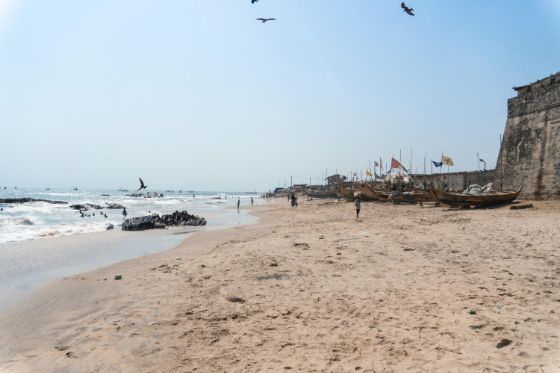
Western Africa is a culturally unique region amidst beautiful and unique natural settings. From lush rainforests to stunning coastlines along the Gulf of Guinea, this area is filled with natural beauty to enjoy.
Discover iconic landmarks that tell stories of Western Africa's vibrant past, such as the Ashanti Empire in Ghana, the mud-brick mosques of Timbuktu in Mali, and the picturesque fishing villages of Senegal.
Experience the vibrant traditions and customs that flourish in Western Africa. Feel the rhythmic beats of Afrobeat music in Nigeria, witness colorful masquerades and festivals in Benin, and savor the flavors of Senegalese cuisine. Engage with local artisans in bustling markets and embrace the vibrant spirit of the communities.
Western Africa's diverse heritage, influenced by ancient kingdoms, colonial histories, and contemporary innovations, creates a unique cultural mosaic. Explore the vibrant cities, embark on wildlife safaris, or participate in captivating traditions. Western Africa promises an unforgettable journey filled with cultural immersion and natural beauty.
Birthplace of voodoo, Benin brims with vibrant culture. Visit Ganvie, the Lake Village, explore the UNESCO-protected Royal Palaces of Abomey, and the Ouidah’s historic Slave Route. The lively markets and traditional Dahomey cuisine add to the unforgettable experience.
- U.S. Passport Validity Requirements: Passports must be valid for at least six months from the date of entry.
- Tourist Visa Requirements: Yes.
- Blank Passport Pages Required: Passports must have at least two blank pages.
From Ouagadougou’s bustling markets to Bobo-Dioulasso’s grand mosque, Burkina Faso is a cultural hub. Visit Banfora’s stunning waterfalls, Sindou Peaks and experience the unique music and dance festivals.
- Blank Passport Pages Required: Passports must have at least one blank page.
Cape Verde enchants with its mix of African and Portuguese cultures. Visit Mindelo’s vibrant music scene, hike Pico do Fogo volcano, or relax on Sal Island’s pristine beaches. Enjoy local specialties like cachupa, a hearty stew.
Gambia is a birdwatcher’s paradise with numerous nature reserves. Explore Banjul’s vibrant markets and historical sites, cruise along the Gambia River, or relax on the beautiful beaches. Don’t miss traditional dishes like domoda, a hearty peanut stew.
- U.S. Passport Validity Requirements: 6 months 1
- Tourist Visa Requirements: Not required for stays up to 90 days 1
- Blank Passport Pages Required: 1 page 2
From bustling Accra to historic Cape Coast, Ghana offers a mix of modern life and rich history. Visit the Kakum National Park’s canopy walkway, experience traditional Ashanti culture, and taste delicious local dishes like jollof rice.
- U.S. Passport Validity Requirements: 6 months 3
- Tourist Visa Requirements: Yes 4
- Blank Passport Pages Required: At least one blank page 2
Explore Guinea’s diverse landscapes, from the bustling markets of Conakry to Fouta Djallon’s mountains. Take a boat trip on the Niger River, learn about local traditions, and savor dishes like poulet Yassa.
- U.S. Passport Validity Requirements: 6 months 5
- Tourist Visa Requirements: Yes 5
- Blank Passport Pages Required: One page for entry stamp 5
Discover the Bijagos Archipelago’s untouched beaches, vibrant wildlife, and unique matriarchal society. Enjoy Bissau’s colonial charm and Carnaval, one of Africa’s most vibrant, featuring traditional mask dances.
- U.S. Passport Validity Requirements: Six months 6
- Tourist Visa Requirements: Yes 6
- Blank Passport Pages Required: One page for entry stamp 6
Ivory Coast (Côte d’Ivoire)
Visit Yamoussoukro’s stunning Basilica of Our Lady of Peace, explore Abidjan’s vibrant culture, or relax on Assinie’s beautiful beaches. Don’t miss traditional dances and delicious Ivorian cuisine like attiéké.
- Blank Passport Pages Required: 1 page
Liberia offers a mix of beautiful landscapes and rich history. Visit Monrovia’s lively markets, relax on Robertsport’s stunning beaches, or explore the wildlife-rich Sapo National Park. Experience traditional Liberian music and dance.
- U.S. Passport Validity Requirements: Valid at time of entry
- Blank Passport Pages Required: One page per entry stamp
Visit Mali’s UNESCO sites like Timbuktu and the stunning mud-brick Great Mosque of Djenné. Experience the vibrant culture of Bamako, and enjoy traditional music and Mali’s staple dish, jollof rice.
From the bustling markets of Niamey to the beauty of the Tenere Desert and the ancient city of Agadez, Niger offers an authentic Sahara experience. Experience traditional music and try local dishes like dambu.
- U.S. Passport Validity Requirements: Must be valid at time of entry
- Blank Passport Pages Required: Two pages are required for entry stamp
Visit Lagos for its vibrant music scene, Calabar for its rich history, or the stunning Aso Rock. Experience Nigeria’s diverse cultures, enjoy Nollywood films, and taste jollof rice and suya.
- Blank Passport Pages Required: One page
Explore Dakar’s vibrant markets, historic Gorée Island, and the unique pink Lake Retba. Listen to the beat of Sabar drums and try delicious Senegalese dishes like thieboudienne.
- Tourist Visa Requirements: Obtainable upon arrival
- Blank Passport Pages Required: 1 page per stamp
Visit Freetown’s bustling markets, relax on the beautiful beaches of River No. 2, and hike Mount Bintumani. Try local dishes like groundnut stew and experience the vibrant culture.
Discover Lomé’s vibrant markets, Koutammakou’s traditional mud tower-houses, and Togo’s beautiful beaches. Enjoy local music and traditional dishes like fufu and palm nut soup.

Central Africa
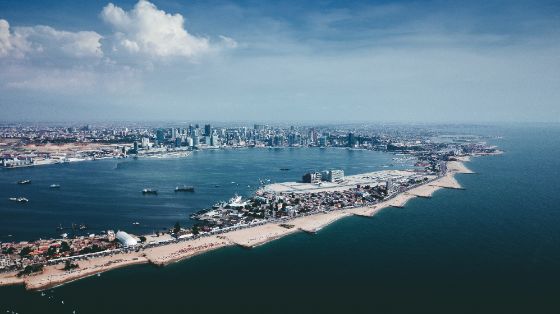
Central Africa is a region characterized by its dense rainforests teeming with biodiversity to expansive savannahs and majestic rivers. This portion of the continent offers a wealth of natural marvels to explore.
Central Africa is also home to iconic landmarks that reflect its unique history and cultural significance. Encounter the mystical beauty of the Congo Basin, marvel at the stunning waterfalls of Gabon's Ivindo National Park, or witness the breathtaking volcanic landscapes of the Virunga Mountains. These remarkable sites showcase the region's geological wonders and provide a glimpse into its fascinating past.
There are a plethora of rich, thriving cultures in Central Africa. Experience the rhythmic beats of traditional music, witness vibrant ceremonial dances, and savor the flavors of local cuisine. Engage with local communities, explore bustling markets, and discover the intricate craftsmanship of Central African artisans.
Central Africa is home to a wide variety of ethnicities, languages, and spiritual traditions. It embodies a rich fusion of indigenous customs, colonial influences, and contemporary expressions. Whether exploring the vibrant cities, embarking on wildlife encounters in national parks, or delving into the cultural heritage of the region, Central Africa promises an unforgettable journey filled with immersive experiences and natural wonders.
Luanda’s vibrant life, colonial architecture, and beaches contrast with the breathtaking landscapes of Kissama National Park. Experience local music, Kizomba and Semba, and try the rich Angolan cuisine. Truly a hidden gem!
- U.S. Passport Validity Requirements: Passports must be valid for more than six months and have two consecutive blank pages.
- Blank Passport Pages Required: Passports must have at least four blank pages.
Explore Lake Tanganyika’s sandy beaches, spot hippos in Rusizi River National Park, or hike Mount Heha for breathtaking views. Experience Burundi’s traditional drumming, an intangible UNESCO heritage, and enjoy their local cuisine.
Known as “Africa in miniature”, Cameroon offers diverse landscapes from Mt. Cameroon to Waza National Park. Savor traditional dishes like ndolé, visit the Bamileke’s chiefdoms, or enjoy Douala’s nightlife.
Explore Bangui’s colorful markets, journey through Dzanga-Sangha Reserve for unique wildlife sightings, and learn about the fascinating Baka people. Despite challenges, it’s a country with untapped beauty and rich culture.
Experience Chad’s natural beauty, from the Sahara desert to Zakouma National Park’s vast wildlife. Visit Lake Chad and explore the ancient stone structures of the Ennedi Plateau. Chad offers an off-the-beaten-path experience for the adventurous traveler.
Journey through the Congo’s rainforests, home to gorillas and forest elephants. Visit Brazzaville for its colonial architecture and lively markets. Don’t miss the lively music scene and taste delicious Congolese cuisine.
Explore Virunga National Park, home to endangered mountain gorillas. Discover Kinshasa’s vibrant music scene and art markets. An adventurous destination for wildlife and culture enthusiasts!
- Tourist Visa Requirements: Yes, obtain in advance
From Malabo’s Spanish colonial architecture to Bioko Island’s volcanic landscapes and wildlife, Equatorial Guinea is a hidden treasure. Experience vibrant cultural festivals, visit Ureka’s pristine beaches, and enjoy local dishes like succotash.
- Blank Passport Pages Required: 1 page 5
Encounter forest elephants, gorillas, and more in Loango National Park. Enjoy Libreville’s French influences, surf on pristine beaches, and immerse yourself in the vibrant Gabonese music scene.
- U.S. Passport Validity Requirements: 6 months 4
- Blank Passport Pages Required: 1 page per stamp 4
Tropical paradise with lush rainforests, pristine beaches, and unique wildlife. Discover the colonial heritage of São Tomé city, hike on Pico Cão Grande, or snorkel in the clear waters. Taste the world-renowned cocoa and local dishes like calulu.
Eastern Africa
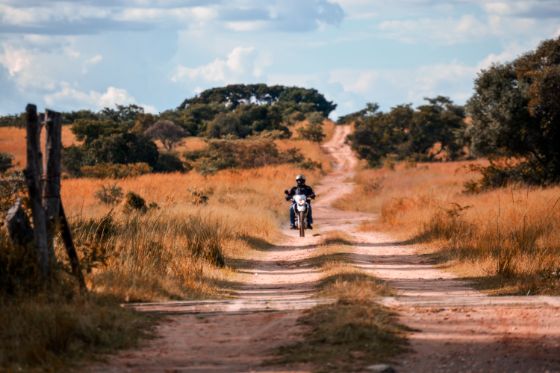
Eastern Africa is a mesmerizing region renowned for its diverse landscapes and vibrant cultural influences. From the vast plains of the Serengeti to the towering peaks of Mount Kilimanjaro and the stunning beaches along the Swahili Coast, this area offers a lot of natural treasures to discover.
East Africa is full of iconic landmarks to see that showcase its rich history and natural wonders. Witness the majestic wildlife migrations in Kenya's Maasai Mara, explore the ancient ruins of Ethiopia's Aksum, marvel at the mighty Victoria Falls in Zimbabwe, or take in the stunning beauty of Tanzania's Zanzibar Archipelago. These remarkable sites reflect the region's deep cultural heritage and remarkable geographic splendor.
Eastern Africa combines cultural influences from indigenous tribes, Arab traders, and European colonizers, creating a varied and unique cultural blend for travelers to experience. Whether exploring vibrant urban centers, embarking on thrilling safari adventures, or embracing the tranquility of coastal retreats, East Africa promises an unforgettable journey filled with immersive experiences and breathtaking natural beauty.
Comoros, a chain of volcanic islands, enchants visitors with beautiful beaches, lush forests, and old-world charm. Experience vibrant local markets, the historic medina in Moroni, and the fragrant ylang-ylang plantations. A tropical paradise awaits!
A land of extremes, from Lake Assal, one of the world’s saltiest lakes, to the alien-like landscapes of Lac Abbe. Spot whale sharks in the Gulf of Tadjoura and savor the blend of African, Arabian, and French influences in the local cuisine.
Admire Asmara’s Italian Art Deco architecture, explore the ruins of Adulis, or relax on Dahlak Archipelago’s untouched beaches. Taste traditional Eritrean coffee and dishes like zigni, a spicy stew.
- Tourist Visa Requirements: Yes, obtain in advance 1
- Blank Passport Pages Required: 2 pages 1
Explore Lalibela’s rock-hewn churches, the ancient stele in Axum, or the Simien Mountains’ rugged beauty. Discover Addis Ababa’s bustling markets, enjoy traditional Ethiopian coffee ceremonies, and savor the flavors of injera and doro wat.
- U.S. Passport Validity Requirements: 6 months 23
- Tourist Visa Requirements: Yes 2
Kenya, home to the Maasai Mara, offers incredible wildlife safaris. Visit Nairobi’s bustling markets, explore the beautiful beaches of Mombasa, and enjoy traditional Swahili dishes. A nature lover’s paradise!
Unique wildlife, stunning landscapes, and a unique culture define Madagascar. See lemurs in Andasibe-Mantadia National Park, hike the otherworldly Tsingy de Bemaraha, or relax on Nosy Be’s beaches. Don’t miss local dishes like romazava.
Known as the “Warm Heart of Africa”, Malawi enchants with its friendly people, Lake Malawi’s sparkling waters, and the majestic Mount Mulanje. Experience lively local music and try Malawian nsima, a traditional maize dish.
- U.S. Passport Validity Requirements: Valid at time of entry; 3 months of remaining validity suggested
An island paradise with white sandy beaches, clear blue waters, and lush green sugarcane fields. Visit Port Louis’ bustling market, enjoy water sports, or explore the Black River Gorges National Park. Savor the unique Creole cuisine!
- U.S. Passport Validity Requirements: Duration of stay
- Tourist Visa Requirements: No, tourist visa is granted upon arrival
Discover Maputo’s vibrant culture, Tofo’s stunning beaches, and the wildlife-rich Gorongosa National Park. Enjoy fresh seafood, dance to Marrabenta music, and experience the fascinating mix of African, Arab, and Portuguese influences.
Explore Volcanoes National Park, home to mountain gorillas, or relax on Lake Kivu’s shores. Visit Kigali’s Genocide Memorial for a moving history lesson. Enjoy traditional music and dance, and try local cuisine like ugali.
Discover this tropical paradise with stunning beaches, coral reefs, and unique wildlife. Explore the vibrant Creole culture of Victoria, hike in Morne Seychellois National Park, and savor local seafood.
- Tourist Visa Requirements: No, visitor permits granted upon arrival with return ticket
- Blank Passport Pages Required: 1 blank page required
Discover Mogadishu’s historic sites, the ancient ruins of Laas Geel, and Berbera’s beautiful beaches. Experience traditional Somali music and cuisine, including sambusa and camel milk.
Tanzania is known for its stunning wildlife in Serengeti National Park and Ngorongoro Crater, as well as its beautiful beaches in Zanzibar. Enjoy traditional music and try local dishes like ugali and nyama choma.
- U.S. Passport Validity Requirements: Six months beyond date of entry into Tanzania
From tracking gorillas in Bwindi Impenetrable Forest to exploring Queen Elizabeth National Park, Uganda is a wildlife lover’s dream. Enjoy Kampala’s lively music scene and try traditional rolex (chapati and egg roll).
Experience incredible wildlife in South Luangwa National Park, marvel at the majestic Victoria Falls, or canoe on the Zambezi River. Taste traditional nshima, a local staple food.
- U.S. Passport Validity Requirements: Recommend 6 months
- Tourist Visa Requirements: No, to be obtained at port of entry
- Blank Passport Pages Required: Recommend 3 blank pages per entry for Zambia
Visit Hwange National Park for great wildlife spotting, explore the ancient Great Zimbabwe ruins, or marvel at the breathtaking Victoria Falls. Experience traditional Shona culture and enjoy sadza, a traditional maize meal.
- Tourist Visa Requirements: Yes, to be obtained at port of entry
- Blank Passport Pages Required: Recommend 2 blank pages
Southern Africa

Southern Africa is adorned with iconic landmarks that tell stories of its captivating history and geographical wonders. Discover the ancient rock art sites of South Africa's Cederberg Mountains or explore the vibrant city of Cape Town with its iconic Table Mountain backdrop. These remarkable sites epitomize the region's cultural significance and natural beauty.
Experience the melodic sounds of traditional music, witness the energetic dances of indigenous tribes, and savor the flavors of local cuisines. Engage with local communities, visit vibrant markets, and embrace the warmth and hospitality of the people.
Southern Africa is a home to multiple ethnicities, languages, and artistic stylings. The variety of influences from indigenous traditions, colonial histories, and contemporary innovations, create a vibrant and dynamic cultural mosaic. Whether embarking on thrilling wildlife safaris, exploring historic towns and villages, or relaxing on pristine beaches, Southern Africa promises an unforgettable journey filled with once-in-a-lifetime opportunities and awe-inspiring natural wonders.
Botswana’s Okavango Delta and Chobe National Park are a wildlife enthusiast’s dream. Encounter elephants, lions, and more on thrilling safaris. Enjoy the serene beauty of the Makgadikgadi Pans and experience the rich local culture.
- U.S. Passport Validity Requirements: Passports must be valid for a minimum of six months from the date of entry into Botswana, with at least three unused pages.
Known as the “Kingdom in the Sky”, Lesotho offers high-altitude adventures. Trek through the stunning Drakensberg Mountains, visit traditional Basotho villages, and taste local dishes like papa and vleis.
- Tourist Visa Requirements: Not required if stay is less than 180 days
Namibia boasts Etosha National Park’s wildlife, Sossusvlei’s towering sand dunes, and the German-influenced city of Swakopmund. Meet the traditional Himba people and enjoy biltong, a local specialty.
- Tourist Visa Requirements: Not required for stays of 90 days or fewer per calendar year
From Table Mountain to Kruger National Park, South Africa is a land of diverse beauty. Enjoy Cape Town’s history, Johannesburg’s vibrant life, and traditional dishes like biltong and boerewors.
- U.S. Passport Validity Requirements: 30 days beyond the date of departure from South Africa
- Blank Passport Pages Required: Two consecutive blank visa pages per entry
Experience the rich Swazi culture at the Mantenga Cultural Village, explore the wildlife in Hlane Royal National Park, or trek through the scenic Malolotja Nature Reserve. Try traditional Swazi meat dishes and maize porridge.
- U.S. Passport Validity Requirements: Six months
- Tourist Visa Requirements: No, if staying 30 days or less
- Blank Passport Pages Required: Two pages per entry

Get the Latest Updates

Tourist Visa Info
Note that the border posts of many countries, immigration will often give you EXACTLY the number of days you request rather than a set time frame (i.e. 30, 60 or 90 days). To avoid any issues with underestimating the number of days you need in destination, we recommend rounding up to the nearest number of weeks required. Always check the dates and number of days given before you leave the border post to avoid any issues on exiting the country.
Citizens of certain countries are required to obtain visas well in advance of travel for Botswana, Zambia, Zimbabwe & Namibia. Please note that some visas can take up to 3 months to be processed. Please consider this when booking, and note that it is your responsibility to check before the final confirmation.
Information about Covid travel regulations and about travelling with minors (children under 18 years of age) is included for each country. Do note that regulations differ from country to country so it is essential to ensure you have the correct documentation. Proof of Yellow Fever vaccination is required to enter only if travellers have been to a country with risk of yellow fever transmission or in transit for 12 hours or longer.
With the exception of nationals from Ghana, Nigeria, India, Pakistan, Bangladesh and Sri Lanka, nationals of Commonwealth countries do not require a visa prior to travel. Where applicable, visitors can obtain a Tourist Visa for Botswana on arrival at any Port of Entry.
On this page you will find:
- Different Visa Categories
- Which nationalities require a visa
- Passport requirements
- Types of visas for tourists
- Traveling with minors (children under 18 years) to Botswana
- How to pay for your visa
- The current fees for the different visas
- Links to the relevant government visa websites
Different Botswana Tourist Visa Categories
There are only two categories of Tourist Visa for Botswana;
Non-Visa Category : No visa is required. Present your passport on arrival and receive a stamp allowing 30 days entry, which may be extended at an Immigration Office.
Visa Category : Visa is obtained on, or prior to arrival via the Botswana e-Visa website .
Duration of Stay – Visitors of all nationalities may stay in Botswana for holiday purposes, for a maximum of 90 days per 12 month period, without a permit.
For current Covid travel requirements into Botswana and Southern Africa, please read through the Covid travel information page. Proof of Yellow Fever vaccination is required to enter only if travellers have been to a country with risk of yellow fever transmission or in transit for 12 hours or longer.
Nationalities that Require a Tourist Visa for Botswana
To find out which Category of Tourist Visa for Botswana applies to you, visit the Botswana Tourism Website .
Passport Requirements for entering Botswana
Before travelling to Botswana, please ensure that you have the following:
- Passport valid for at least six months
- At least three blank pages in your passport
- Sufficient funds for the duration of your stay
- Return ticket or onward ticket, if arriving by air.
- Temporary passports are not accepted in Botswana
Traveling with Minors (Children under 18 Years) to Botswana
As of 2016, Botswana enacted regulations regarding children under the age of 18 , travelling through the country, either alone or with parents/guardians. In simple form, the rules state the following:
- In addition to having a valid passport and visa, the minor child must have a certified copy of their unabridged birth certificate (detailing both their, and their parents’ personal information.
- If only one parent is accompanying the minor child, they must have an affidavit from the absent parent giving permission for travel. If the absent parent is not named on the birth certificate, an affidavit is not required.
While these are the basic rules, there are exceptions and situations that are detailed in the table below where you will find more specific information for different circumstances:
Types of Botswana Tourist Visas
Single Entry – Once off entry and exit for Botswana. Valid for one month from issue.
Multiple Entry – Multiple entries and exits from the country. Valid for up to 3 months.
Current Fee Structure for Botswana Visas*
There are no fees applicable for non-Visa Category arrivals. However, fees related to road use are applicable to self-drivers at the Ports of Entry.
Visa Category arrivals can either pay on arrival, or prior to arrival where online applications are made. Payment is accepted in US Dollars, Pound Sterling, Euros and South African Rands. Only Visa and Mastercard are accepted for online payments. Contact your nearest Botswana Mission Abroad, Africa’s Eden Travel, or your tour operator for more information.
- Single Entry – 300 Pula or US$30 per person
- Multiple Entry – 500 Pula or US$50 per person
- Transit Visa – As above
* Please confirm the current visa price prior to travel.
NB: Issued to Visa Category nationals at Ports of Entry.
Useful Links:
The following links will help you obtain your Tourist Visa for Botswana and other important information.
Botswana Tourism Board Information Page:
https://www.botswanatourism.co.bw/
Botswana Visitor Information:
https://www.botswanatourism.co.bw/travel-information
The Namibian government requires tourists to obtain a Tourist Visa for Namibia in order to enter the country, either on or prior to arrival.
For current Covid travel requirements into Namibia and Southern Africa, please read through the Covid travel information page. Proof of Yellow Fever vaccination is required to enter only if travellers have been to a country with risk of yellow fever transmission or in transit for 12 hours or longer.
Different Namibian Tourist Visa Categories
Holiday/Visitor’s Visa
Nationalities that Require a Tourist Visa for Namibia
Visit the Namibian Tourism Board Website for more information.
Passport Requirements to enter Namibia
- A passport valid for at least 6 months after your date of arrival
- Sufficient blank page in your passport for the entry visa
- If flying into Namibia, you must be able to produce a Return/Onward Ticket
- Proof of sufficient funds to cover your stay, particularly if arriving by land/boat.
Types of Namibian Tourist Visas
Holiday/Visitor’s Visa – All nationals arriving in Namibia for the purpose of tourism must obtain a visa on arrival. Visa is valid for three months from date of issue, and can be renewed for an additional three months at the Ministry of Home Affairs in Windhoek.
Purchasing a Visa in Namibia
For nationals of countries that have a Visa-Exemption Agreement with Namibia, there is no cost for a visa.
For nationals of countries that do not have a Visa-Exemption Agreement with Namibia, visas can be purchased on arrival at any Port of Entry. Therefore, nationals of the following countries MUST PURCHASE a visa on arrival:
Belarus, Bulgaria, Cambodia, Chile, Czech Republic, Hungary, Mexico, Moldova, Nicaragua, Poland, Romania, Slovakia, South Korea, Venezuela, Vietnam, Thailand, United Arab Emirates, Singapore and Ukraine.
Current Fee Structure for Namibia Visas*
Holiday / Visitor’s Visa** – N$600.00 (up to 90 days per annum only)
Transit Visa*** – N$ 600.00 (Valid for 72 hours)
** Free for Countries that have Visa Exemption Agreements with Namibia
*** Additional Requirements – Proof of Final Destination, Proof of Sufficient Funds While In Transit
The following links will help you obtain your Tourist Visa for Namibia and other important information.
Namibian Tourism Visa Information:
https://visitnamibia.com.na/visa-information/
Namibian Holiday and Transit Visa Fees
https://mha.gov.na/web/mhai/fees#:~:text=Visas,for%2090%20days )
Namibian Immigration Documents Required
https://mha.gov.na/web/mhai/visas-immigration-control-act-act-no-7
Namibian Diplomatic Missions Abroad
https://visitnamibia.com.na/our-foreign-missions/
Department of Immigration Control and Citizenship
https://mha.gov.na/department-of-immigration-control-and-citizenship
The Zambian government requires tourists to obtain a Tourist Visa for Zambia in order to enter the country, either on or prior to arrival.
- Traveling with minors (children under 18 years) to Zambia
For current Covid travel requirements into Zambia and Southern Africa, please read through the Covid travel information page. Proof of Yellow Fever vaccination is required to enter only if travellers have been to a country with risk of yellow fever transmission or in transit for 12 hours or longer.
Different Zambian Visa Categories
Tourists visiting Zambia are subject to the conditions of three Visa Categories detailed below:
Category One: No visa required. Aside from being required to produce a valid passport at the port of entry, no other action or fee is applicable
Category Two: Visa obtained on arrival at the port of entry (airport or border post), or issued at Missions Abroad prior to arrival, for which there are applicable fees and actions.
Category Three: A referred visa is required prior to travel to Zambia. These are issued at Zambian Diplomatic Missions in your home country, or a neighbouring country.
You may also apply for the Tourist Visa for Zambia online by visiting the Zambian eVisa Website . Should you experience any difficulty, please contact Africa’s Eden, or your Zambian accommodation provider, for assistance.
Please Note: If you intend to visit Zimbabwe, and/or make a day-trip into Botswana, in conjunction with your visit to Zambia, then it may be more economical to obtain a KAZA UniVisa .
Kaza Univisa – A multiple entry visa for Zambia and Zimbabwe which is valid for 30 days and allows for a day trip (not overnight) to Botswana. This visa may be obtained (subject to availability) from to the following entry points:
- Kenneth Kaunda International Airport – Lusaka, Zambia
- Harry Mwanga Nkumbula International Airport – Livingstone, Zambia
- Harare International Airport – Harare, Zimbabwe
- Victoria Falls International Airport – Victoria Falls, Zimbabwe
- Victoria Falls Border Post – Zambia/Zimbabwe
- Kazangula Border Post – Zambia/Botswana and Zimbabwe/Botswana
Tourists from the following countries are eligible to obtain the Kaza Univisa though note that this is subject to availability. Note that the Kaza Univsa is only issued if or when the traveller requires a visa to enter that country. As such, the Kaza Univisa is typically only issued upon arrival to Zimbabwe.
- Bosnia-Herzegovina
- Britain (United Kingdom)
- Comoros Islands
- Cook Islands
- Czech Republic
- French Polynesia
- French West Indies
- Liechtenstein
- Marshall Islands
- Netherlands
- New Caledonia
- New Zealand
- Puerto Rico
- South Korea
- Switzerland
- United Arab Emirates
- United States of America
Check which Visa Category applies to you
To find out which Category of Tourist Visa for Zambia applies to you, vist the Zambian Tourism Website .
Passport Requirements
Before travelling to Zambia, please ensure that you have the following:
- At least two blank page in your passport for the entry visa
- If flying into Zambia, you must be able to produce a Return Ticket
Types of Zambian Tourist Visas
Single Entry – Valid for up to 90 days from the date of issue, this visa allows the holder one-time entry and exit from Zambia. Single Use Only
Double Entry – Valid for up to 90 days from the date of issue, you may enter Zambia twice. Visa expires after two entries and two exits.
Multiple Entry – Valid for up to 90 days from date of issue, allowing more than two entries/exits. In the case of United States Passport Holders, the validity is up to three years from the date of issue.
Day-Tripper – A single entry valid for less than 24 hours. This visa is specific for use at the Kazangula Border (Botswana) and the Victoria Falls Border (Zimbabwe). Users must enter and exit via the same border post.
Transit – For those travelling by land through Zambia. Clear rules of use apply, which can be obtained on application.
How to Pay for Your Visa
List of Countries Who Do and Do Not Require a Visa for Zambia
If you have not paid for your Tourist Visa for Zambia prior to arrival, either online or at a Zambian Diplomatic Mission Abroad, you will be required to pay for the visa on arrival at the port of entry.
As of 1 st November 2022, Zambia waived the visa fee for entering the country for citizens of the following countries:
- Saudi Arabia
- The European Union
- The Gulf States (Bahrain, Kuwait, Iraq, Oman, Qatar, Saudi Arabia and the United Arab Emirates)
- United Kingdom
Kenneth Kaunda International Airport (Lusaka), Harry Mwanga International Airport / Livingstone Airport (Livingstone), and Simon Mwansa Kapwepwe International Airport (Ndola) all have credit card facilities where you may use MasterCard, Visa, Maestro and American Express cards to pay for your Zambia visa. There is a small service fee when paying with a card (currently 1.1%). Since there is a possibility that the card services may be out of operation, consider bringing an amount equivalent to your visa fee in US Dollars.
Current Fee Structure for Zambian Visas
Single Entry – US $25 Double Entry – US $40 Transit – US $25 Day Tripper – US $10 KAZA Univisa – US$ 50
Traveling with Minors (Children Under 18 Years) to Zambia
Although Zambia does not require additional documentation for minors entering the country, it is always advisable to carry birth certificates and an affidavit from any non-traveling parent for all children under 18 years of age. Note that when traveling to South Africa or Botswana, these regulations are strictly adhered to.
The following links will help you obtain your Tourist Visa for Zambia and other important information.
Zambian Immigration e-Services Mainpage: https://eservices.zambiaimmigration.gov.zm/#/home
KAZA UniVisa Info: https://www.zambiaimmigration.gov.zm/kaza-univisa/
Zambia Missions Abroad https://www.zambiaimmigration.gov.zm/zambia-missions-abroad/#1549895597311-3d5e40b5-9728
Zambian Visitor Information: https://www.zambiaimmigration.gov.zm/for-visitors/
The Zimbabwean government requires tourists to obtain a Tourist Visa for Zimbabwe in order to enter the country, either on or prior to arrival.
On this page you will find tourist visa info for Zimbabwe, including:
For current Covid travel requirements into Zimbabwe and Southern Africa, please read through the Covid travel information page. Proof of Yellow Fever vaccination is required to enter only if travellers have been to a country with risk of yellow fever transmission or in transit for 12 hours or longer.
Different Zimbabwean Tourist Visa Categories
Tourists visiting Zimbabwe are subject to the conditions of one of three Visa Categories detailed below. Passport holders of Category A or B visiting for a short-term holiday, can enter Zimbabwe with few formalities. Category C visitors must obtain an approved visa prior to travel.
Category A: No visa required. Aside from being required to produce a valid passport at the port of entry, no other action or fee is applicable
Category Two: Visa obtained on arrival at the port of entry (airport or border post). You may also pre-apply and pay for your visa online, using the Zimbabwe e-Visa Website – however, the site is not considered technically reliable. Also, visas obtained via an agency at home typically attract additional fees and effort.
Category Three: National of these countries must apply for and obtain their Tourist Visa for Zimbabwe prior to travelling. This may be done at the Zimbabwe High Commission in your country (or neighbouring country, as applicable), or by using the Zimbabwe e-Visa Website – however, the site is not considered technically reliable.
Please Note: If you intend to visit Zambia, and/or make a day-trip into Botswana, in conjunction with your visit to Zimbabwe, then it is more economical to obtain a KAZA UniVisa . Follow the link for more information.
Nationalities that Require a Tourist Visa
To find out which Category of Tourist Visa for Zimbabwe applies to you, visit the Zimbabwean Tourism Website.
Before travelling to Zimbabwe, please ensure that you have the following:
- If flying into Zimbabwe, you must be able to produce a Return Ticket or Proof of Funds to purchase while in the country.
Types of Zimbabwean Tourist Visas
IMPORTANT: There is no separate rate for tourist visas to Zimbabwe for children, and visas are required irrespective of age.
Single Entry – Valid for Single entry into Zimbabwe. Expires on departure.
Double Entry – Valid for up to two entries and for 90 days from the date of issues. Expires after two entries and exits of the Zimbabwe Border Control.
Multiple Entry – NB: Cannot be obtained on arrival. Visitors are required to obtain a single entry visa and then apply for a Multiple Entry Visa at a town office. This may take up to seven working days to process, and applications are frequently declined. It is suggested that if you wish to enter more than three times, that you obtain an initial single entry, followed by successive double entry visas as per your travel requirements.
Tourists from the following countries are eligible to obtain the Kaza Univisa though note that this is subject to availability:
Purchasing a Visa in Zimbabwe
Category B visitors can pay for their visa at the Port of Entry on arrival, or when applying online via the e-Visa website. Visitors are advised to have the US dollars available to cover visa expenses, as credit card machines are considered unreliable in Zimbabwe, particularly for visa payments.
Category C nationals pay for their visa during the online application process.
Current Fee Structure for Zimbabwe Visas
Single Entry – US$ 30 Double Entry – US$ 45 Multiple Entry – See notes above – US$ 55 United Kingdom – $55 (single) $70 (double) Canadians – $75 (single) Kaza Univisa – $50
The following links will help you obtain your Tourist Visa for Zimbabwe, along with other useful information;
Zimbabwean Immigration e-Services Mainpage: https://www.evisa.gov.zw/home
Zimbabwe Visa Categories: https://zimbabwetourism.net/visas-and-immigration/
Zimbabwe Missions Abroad http://www.zimfa.gov.zw/index.php/zimbabwe-embassies
Zimbabwe Immigration FAQ: https://www.evisa.gov.zw/help/faq
Zimbabwean Tourism Board Information Page: https://zimbabwetourism.net/plan-your-trip/
The South African government requires tourists to obtain a Tourist Visa for South Africa in order to enter the country, either on or prior to arrival.
Travelling with minors (children under 18) to South Africa
For current Covid travel requirements into South Africa and Southern Africa, please read through the Covid travel information page. Proof of Yellow Fever vaccination is required to enter only if travellers have been to a country with risk of yellow fever transmission or in transit for 12 hours or longer.
Different South African Tourist Visa Categories
Visa-Exemption – No visa required. Aside from being required to produce a valid passport at the port of entry, no other action or fee is applicable. Visitor may stay in the country for up to 90 days from arrival date.
Visitor’s Visa – Valid for a single entry and valid for 90 days or less.
Nationalities that Require a Visa for South Africa
Prospective visitors from countries that do not have Visa-Exemption for South Africa, must apply at a South African Mission Abroad , or apply online if your country is not listed in the Department of Home Affair Visa-Exemption list .
Passport Requirements to enter South Africa
- A valid and acceptable passport or travel document for your intended stay
- At least one blank page in your passport for endorsements
- A valid visa, if required
- Sufficient funds to pay for your day-to-day expenses during your stay
- A return or onward ticket
- Yellow fever certificates if your journey starts or entails passing through the yellow fever belt of Africa or South America.
Types of South African Tourist Visas
Visitors Visa – Valid for a single entry and valid for 90 days or less
Purchasing a Visa for South Africa
Prospective visitors to South Africa who do not have visa-exemption, must apply and pay for their visa prior to travel. This can be done directly at a South African Mission Abroad, or online. Only once in possession of the visa approval should travel to South Africa be undertaken. Visitors arriving without a visa will be denied entry and placed on a flight to their home country.
Current Fee Structure for South African Visas
The price for a Visitor’s Visa varies from one country to the next. Applicants will be advised of the fee in the course of their application.
Any minor (child under 18 years of age) traveling to South Africa must carry with them:
- Unabridged birth certificate or certified copy thereof
- A certified affidavit letter from any non-travelling parent allowing the minor child to travel with the other parent or another adult. This should include both the child and adult’s passport information and travel plans.
If only one parent appears on the birth certificate, and the child is traveling with the parent then no affidavit is required.
In the case of a parent having sole custody of a child, then original or certified copies of the court document is required.
In the case of a death of one parent , then an original or certified copy of the death certificate is required.
The following links will help you obtain your Tourist Visa for South Africa and other important information.
South African Immigration e-Visa Mainpage: https://evisa-southafrica.com/
South African Visa Exemptions http://www.dha.gov.za/index.php/immigration-services/exempt-countries
South African Missions Abroad https://www.gov.za/links/south-african-missions-abroad
South African Tourism Board Information Page: https://www.gov.za/faq/travel-tourism/i-want-visit-south-africa-where-do-i-find-information
South African Department of Tourism https://www.tourism.gov.za/Pages/home.aspx
Destinations
Our members.
- Member Login
- Events and Roadshows
Travel Info
- Flight Schedules & Air Routes
Get in Touch
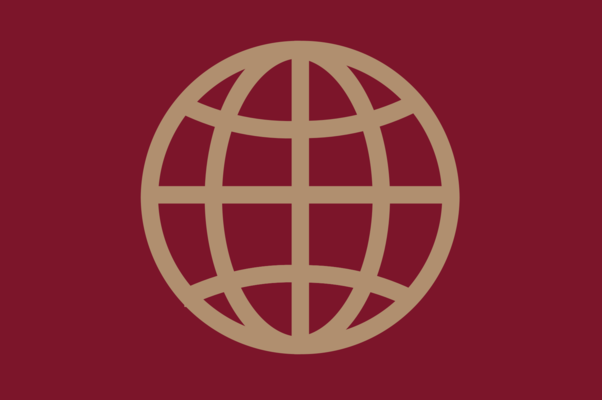
- East Africa Tourist Visa Online
- Evisa.Express
East Africa Tourist Visa
The East Africa Tourist Visa is a joint single-entry electronic visa dedicated to all eligible citizens who wish to visit Kenya , Rwanda , and Uganda using one document .
The Tourist Visa to East Africa stays valid for 90 days in a 180-day period starting from the date of issue . All visitors are able to travel freely within East Africa using this e-Visa system .
The application process can be done online without the need to visit an Embassy or undergo visa interviews. Applicants must fill out a simple form online , check the provided data, and cover the issuing fee.
Applicants' passports must have at least 6 months validity from their planned date of entry into the country.
When applying with Evisa Express, the approved East Africa Tourist Visa is sent to each applicant via email within 6 business days .
Note: The electronic tourist visa cannot be used to enter or leave any of the three countries twice in one day or engage in employment or study without permission from the Immigration Authorities.
East Africa Visa types
There is only one type of an East Africa eVisa. It allows travel within and between Kenya, Rwanda, and Uganda for the purposes of tourism . The electronic visa has the following characteristics:
- allows travel in Uganda , Rwanda , & Kenya
- can be used for tourism only in Rwanda and Kenya (this includes family visits .) The electronic visa can be used in Uganda for both tourism and business activities (signing a contract, attending a conference or a meeting.)
- is a multiple entry permit
- is valid for 90 days from the planned date of entry
List of eligible countries
Whereas some countries can be quite selective about which nations participate in their eVisa program, the East Africa Tourist Visa is available to citizens of every nationality .
The only requirement is that you are able to show a valid passport and a few other supporting documents .
Please note that your passport must stay valid for a minimum of six months past the intended date of entry .
East Africa eVisa application form
Please note! You have to apply at least 3 days in advance of your travel.
At Evisa Express , our business is to make travel easier with a straightforward application process. Our customer service team is on call 24/7 , and the online form can be completed at any time .
When you are ready to apply, select " tourism " as the purpose of your travel, and click " Apply Online " using the panel on the left. You'll then be taken to the main application form . Follow these steps to complete the process:
- Fill out the application form with details about yourself and your trip, including the planned date of entry. Follow all of the instructions you find on the form.
- Pay the 149 Euro processing fee using any method of online payment you prefer.
After you click " Submit ," a confirmation email with the personalized application number will be sent to the email address you provided in your form. If you need to contact the support team for any reason, have that number ready so that we may serve you more efficiently.
The processing time may take up to 6 business days, but most applicants get approval sooner.
Your approved online visa to East Africa will be sent to your email box in a PDF format , and will remain valid for 90 days from the date of entry that you've put on your application.
Validity period
The electronic East African tourist Visa will enable you to travel for 90 days , starting on the planned date of entry. Moreover, it allows multiple entries . In other words, during your online visa's validity period, you may enter and exit Uganda and Rwanda as often as you need to, and travel freely between the three countries.
Please note that the validity period for the East Africa eVisa begins on the planned date of entry (the date you put on your application) and not on the date of issue.
Important! Your passport must stay valid for at least 6 months after your planned date of arrival in order for your application to be approved.
Important! In case any changes are made to the traveler's passport , the electronic visa becomes invalid . Whenever you lose your document or change the details on it, you will have to apply for a new eVisa.
Transit information
Travelers transiting through Uganda, Rwanda, or Kenya on their way somewhere else do not need an electronic visa if they do not plan to leave the airport's designated transit zone .
Anyone who plans to leave the transit zone must have a transit entry permit. This visa type must be obtained at the airport; it is not available online . For more information, please contact your airline, as well as the Customs Department at your destination's airport.
Requirements on arrival
All travelers are required to carry the following documents when entering Rwanda or Uganda:*
- Approved eVisa ( printed )
- Valid passport (that will not expire for at least 6 months from the intended date of entry)
*The electronic East Africa Tourist Visa allows travel through Rwanda, Uganda, and Kenya. However, you can enter for the first time only through the country which approved the eVisa .
Both documents will be controlled by the customs officials upon arrival.
East Africa Tourist Visa Sample
If you have already submitted the application form and are waiting for your entry permit to arrive, check the East Africa Tourist Visa sample below to see how this document will look like once it’s delivered!
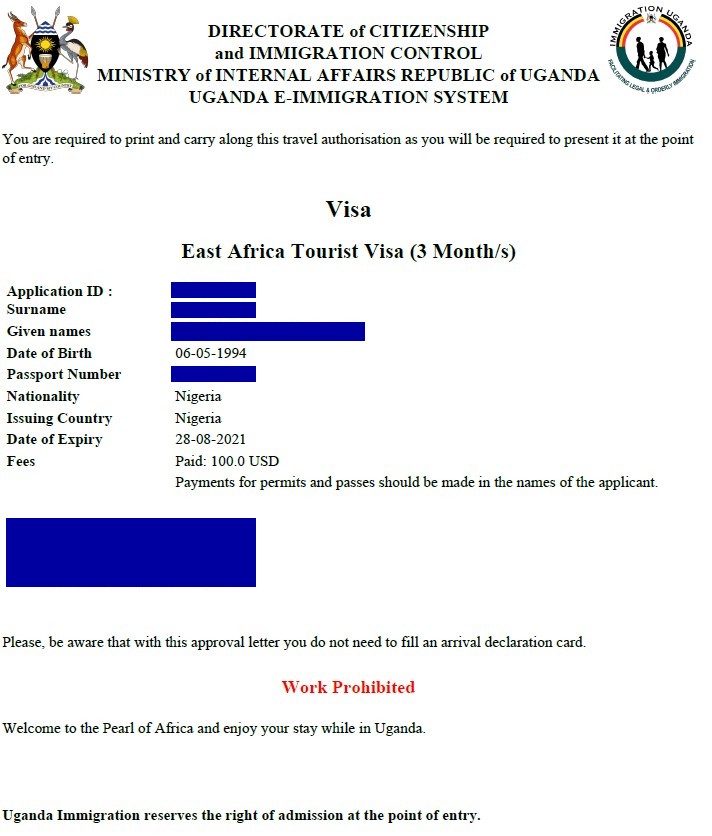
Tourist Visa Requirements
Before applying, please make sure that you understand the basic thinhs about your online visa application .
- Travel document : Any valid travel document, e.g., a passport, with a minimum validity of 6 months.
- eVisa fees : 149 Euro
- eVisa validity : 90 days from the date of arrival stated in the application form
- eVisa extension : The East Africa Tourist Visa cannot be extended
The requirements differ depending on which country you want to enter through.
- Applicant's face photo (that can be taken using a phone or a PC camera)
- A photo of the bio-data page of the applicant's passport
- Applicant's face photo (taken using either a phone or a PC camera)
- Proof of a vaccination certificate against yellow fever
- A document describing your itinerary
- A copy of your return ticket
Important information
- Each applicant has to apply at least 3 days in advance of their trip
- Travelers who already hold a valid visa for Uganda, Rwanda, or Kenya are not eligible for the East Africa Tourist Visa
- You must print out the approved eVisa permit
- The East Africa Tourist Visa does not serve as a working permit. In Rwanda and Kenya, only tourism is allowed (including family visits). In Uganda, both tourism and business activities are permitted, but this does not include being hired by a Ugandan company or starting your own
- The electronic visas for East Africa shall not be extended. If you wish to prolong your stay, you must exit the region and re-apply for a new entry permit
Benefits of Evisa Express
- Easy application process There are three easy steps to get your eVisa to East Africa. Any issues during the application process can be addressed by contacting our support team
- Qualified team of experts A qualified team oversees the processing of every application
- Guarantee of service If an application is unable to be processed, reimbursement is provided according to the conditions set out by our Terms of Service
Evisa Express is an independent company that offers efficient and professional assistance in obtaining eVisas. We are not associated with any governmental agency. See Privacy Policy and Terms of Service.
FAQ about East Africa eVisa
What is an east africa evisa.
The East Africa eVisa is a multiple-entry permit allowing tourism within Rwanda, Uganda, and Kenya. Valid for 90 days past the intended date of entry; the costs are 149 Euro per traveler . You can obtain yours online with Evisa Express by filling in an online application form within minutes!
What is an "EATV app"?
"EATV" stands for " East Africa Travel Visa " that you can apply for online . "App" stands for " application " that can be submitted using any working device . Use your phone, laptop, PC, or tablet to fill the form with some basic personal and travel details and get your eVisa delivered to your inbox !
How to apply for an East African visa online?
To start the process, choose the purpose of your travel and click ' Apply Online ' on the left-hand side of the page. Fill an application form with your data and make an online payment . Lastly, check your inbox for an eVisa PDF version. For a complete description of the online application process, see "East African eVisa - application form", above.
How long is East Africa eVisa valid for?
eVisa for East Africa is valid for 90 days from the intended date of entry . Please remember that in case any details on your passport are changed, should it expire or get lost, the electronic entry permit becomes invalid, since both documents are connected .
Who needs an eVisa for East Africa?
Every traveler who is not a citizen of Kenya, Rwanda, or Uganda needs an eVisa for East Africa. Fortunately, the EATV is available to citizens from every country in the world . Apply online within minutes from home and get yours delivered within a maximum of 6 business days.
How much is the East Africa Tourist visa?
The East Africa Tourist Visa costs 149 Euro . You can choose any of the several methods of online payment available to cover the fees. Once your payment is registered, you will receive an eVisa confirmation number that can be used to check the status of your entry permit.
What are the requirements for the East African eVisa?
The requirements for the East African online visa are elementary . If you plan to enter the region through Rwanda , all you need is your valid passport and a recent photo of yourself . Travelers who plan to enter through Uganda will need a few more documents . For a complete list, see "Required documents", above.
How long does it take for the East African Tourist Visa to be approved?
East African Tourist Visa applications get approved in 6 business days or less . Many applicants find that their applications are approved in under 24 hours . Make sure that the data provided in the online form was correct to avoid delays or issues with eVisa processing.
Can I get an East African Tourist Visa on arrival?
The East Africa Tourist Visas are available on arrival. However, it is far more secure to travel with an electronic visa already in hand . Not only does applying for your entry permit in advance eliminate the risk of wasted airfare, should you be unable to get one on arrival; it also makes traveling stress-free and quick .
What if my East African eVisa application is denied?
Should your application fail to be processed, make sure to contact our support team via email or phone. Our team of professionals always double-checks if every application is correctly filled to ensure successful approval .
How long can I stay in East Africa with an eVisa?
You can stay in East Africa for up to 3 months from the date of entry you put on your application. eVisa stays valid for 90 days and allows you to enter and exit the region as many times as you need to. Make sure that your passport will not expire for the whole duration of the trip.
Can I apply for the East African eVisa for my child?
Not only you can but you must apply for an East African eVisa for your child . Fortunately, processing of the entry permits is exactly the same for children as for adults. Apply online with Evisa Express for every underage traveler. Applications need to be made by child's parent or guardian .
Can I extend the East African Tourist Visa?
Unfortunately, the East Africa Tourist Visa cannot be extended . If you would like to stay longer in Kenya, Rwanda, or Uganda, you must apply online for a new entry permit once you return to your home country. As long as your passport will be valid for at least 6 months from the planned entry date, you may re-apply.
How long does it take to apply for an eVisa to East Africa?
Completing the application process takes just a few minutes .The processing time can take up to 6 business days , although approved eVisas usually arrive faster. The final processing time depends on the governments of Rwanda and Uganda.
Three easy steps to get your eVisa
- Apply online Fill out basic information on your citizenship and the purpose of travel
- Fill out the remaining required information and make an online payment We accept both credit and debit cards, as well as other convenient methods of payment.
- Check your email Once your payment is confirmed, the eVisa will be sent to the email address provided in the application form.
- Canada Consultation
- East Africa
- European Union
- Guinea-Bissau
- New Zealand
- Papua New Guinea
- Saudi Arabia
- South Korea
- United Arab Emirates
- United Kingdom
Evisa Express uses cookies and similar technologies for statistical and analytical purposes to optimize usage. By continuing to browse the site, you are agreeing to our use of cookies. If you do not change the settings, cookies will be saved in your device's memory. Cookie Policy and Terms of Service.
We’re an IATA member
International Air Transport Association (IATA) represents and serves air travel industry with advocacy and global standards for safety, security, efficiency.
Legal Disclaimer: Evisa Express operates with no affiliation with any US governmental agencies or departments. Our consulting service fees do NOT include any government applications, medical examinations, filling, or biometric charges. Since Evisa Express is not a law firm and our customer service representatives are not lawyers, we do not provide legal advice. We operate as a private internet-based travel and immigration consultancy agency providing help to individuals traveling to the United States. Visa applications can be made directly at travel.state.gov or at uscis.gov.
Evisa Express is affiliated with the Canada law firm VisaPlace which provides legal services on immigration matters. Only licensed immigration professionals can provide advice, explanation, opinion, or recommendation about possible legal rights, remedies, defenses, options, selection of forms or strategies. The entity managing the website www.evisa.express is the company INTERNATIONAL VISA SERVICE limited liability limited partnership (LLC LLP), with its registered office in Katowice, ul. Graniczna 29, 40-017 Katowice, Poland, EU. NIP: 9542766476, REGON: 364718356. It is registered with the Katowice-Wschód District Court in Katowice, 8th Commercial Division, under the number KRS 0000623079.

Where In Africa U.S. Citizens Can Visit Without Needing A Travel Visa
Share the post, share this link via, or copy link.
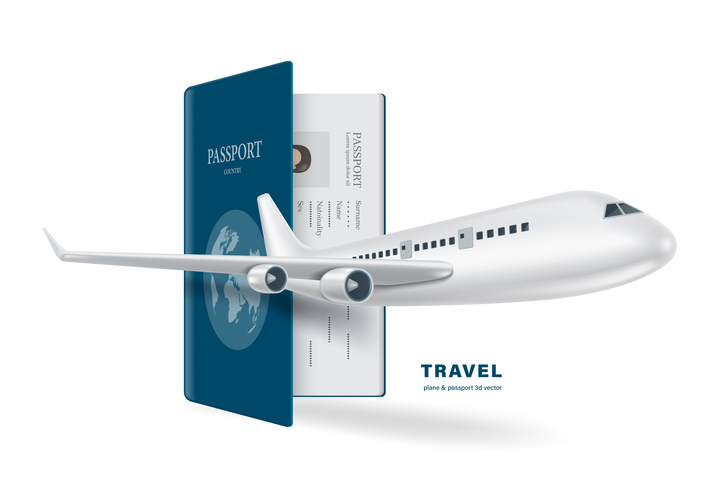
Source: Komsak Charoenchai / Getty
I t’s time to get out and see the world! The time to travel is now and discovering countries in Africa is a great place to start!
If you’ve traveled anywhere outside of the U.S. then you know while planning your trip, being up to date on the latest travel requirements is a priority.
MORE: African Nations: Learn More About Each Of The Continent’s 54 Countries
Each country has its own requirements in place for non-citizens to enter. Some of those requirements for African countries include; vaccination records, yellow fever shots, a health declaration form …. and, of course, a visa.
What Is A Visa?
A visa is a travel document that allows you to enter a foreign country for a specific period of time. There are many different types of visas but the most commonly referred to are tourist and business visas.
How Much Does A Visa Cost?
Visa prices can range from $50-$200 depending on the length of time you choose (short-term or longer-term) and the country you’re visiting.
An application for a visa can take time to process and has to be mailed in so please make sure you allow enough time before your trip to get everything needed back. With the American passport being one of the most “powerful” in the world, thankfully there are 13 African countries you won’t have to spend money or time on for the visa process.
Below you’ll see African countries that only require a valid passport and yellow fever shot and do not require visas in order for American citizens to visit for a range of 15 to 90 days.
Where In Africa U.S. Citizens Can Visit Without Needing A Travel Visa was originally published on woldcnews.com
1. Botswana
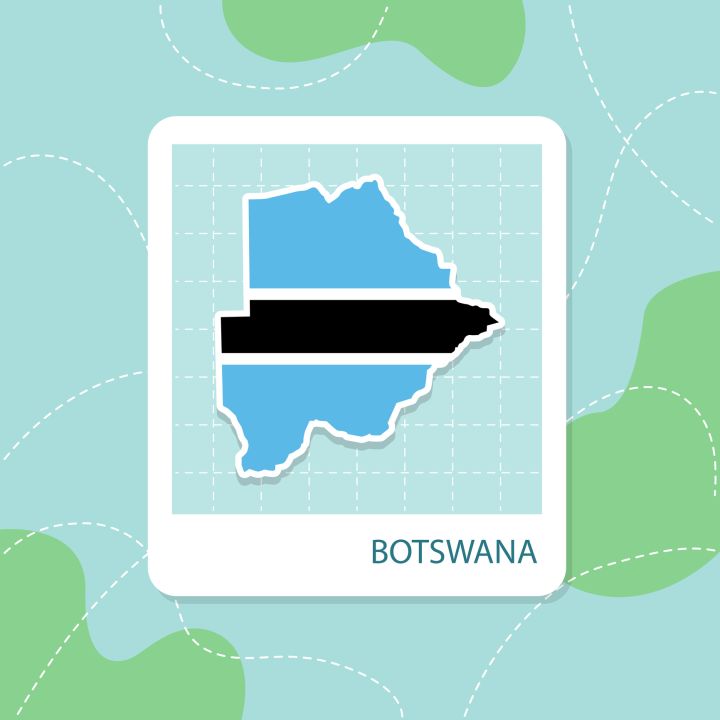
U.S. citizens are permitted stays up to 90 days total within a 12-month period without a visa.
Click Here To Learn More About Botswana
2. Eswatini
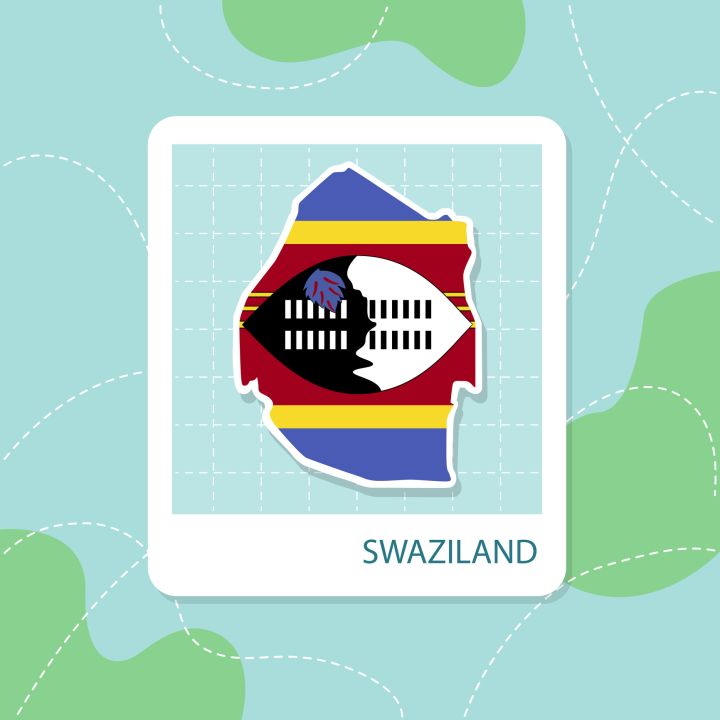
Tourist or business U.S. citizens travellers are allowed to visit Eswatini for up to 30 days visa-free.
Click Here To Learn More About Eswatini
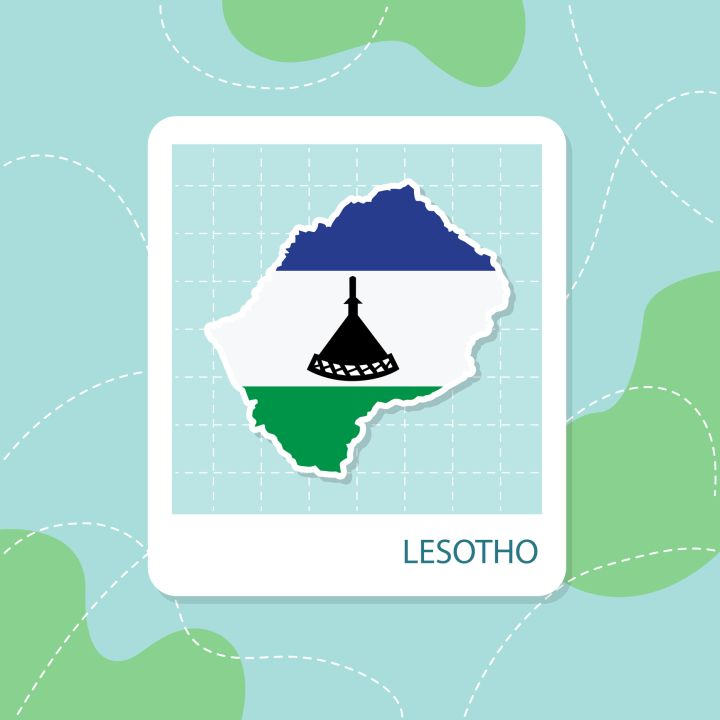
Visas are not required for U.S. citizens visiting Lesotho for 30 days or fewer.
Click Here To Learn More About Lesotho
4. Mauritius
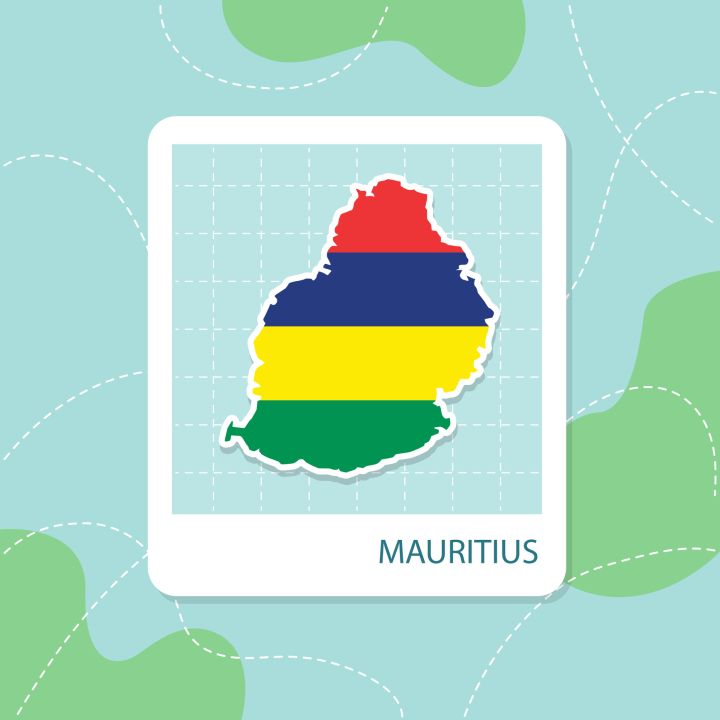
U.S. Citizens do not require a Tourist Visa to enter Mauritius for trips less than 90 days.
Click Here To Learn More About Mauritius.
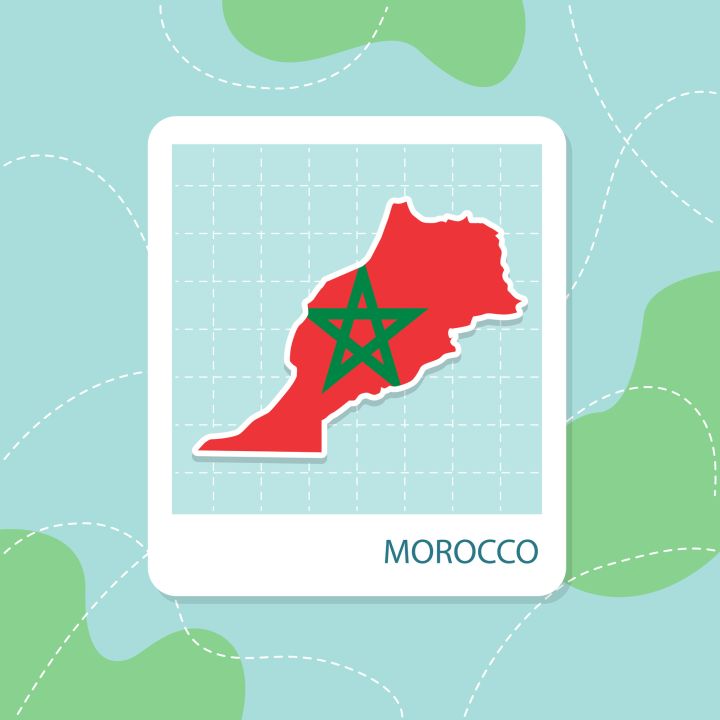
US citizens are exempt from Morocco visas and can visit the country with just their passport and a return flight ticket for up to 90 days.
Click Here To Learn More About Morocco
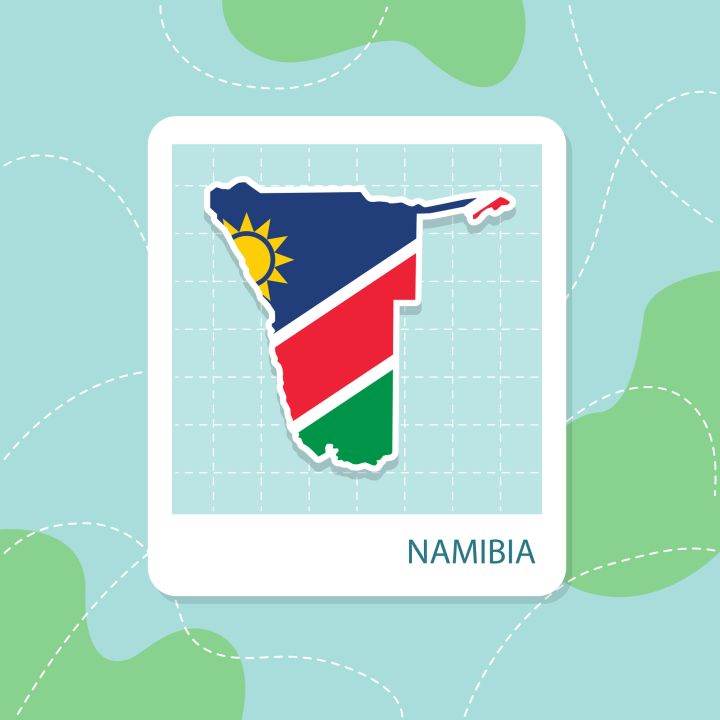
A visa is not required for U.S. passport holders who plan to visit Namibia for tourism or informal business meetings for fewer than 90 days.
Click Here To Learn More About Namibia
7. São Tomé and Príncipe
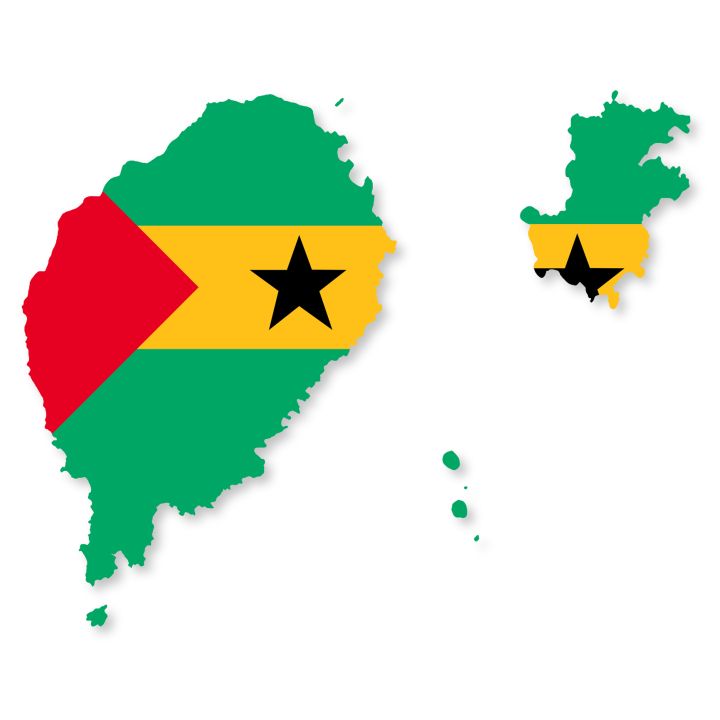
Holders of a valid U.S. passport do not require a visa when visiting São Tomé and Príncipe for a period of up to 15 days.
Click Here To Learn More About São Tomé and Príncipe
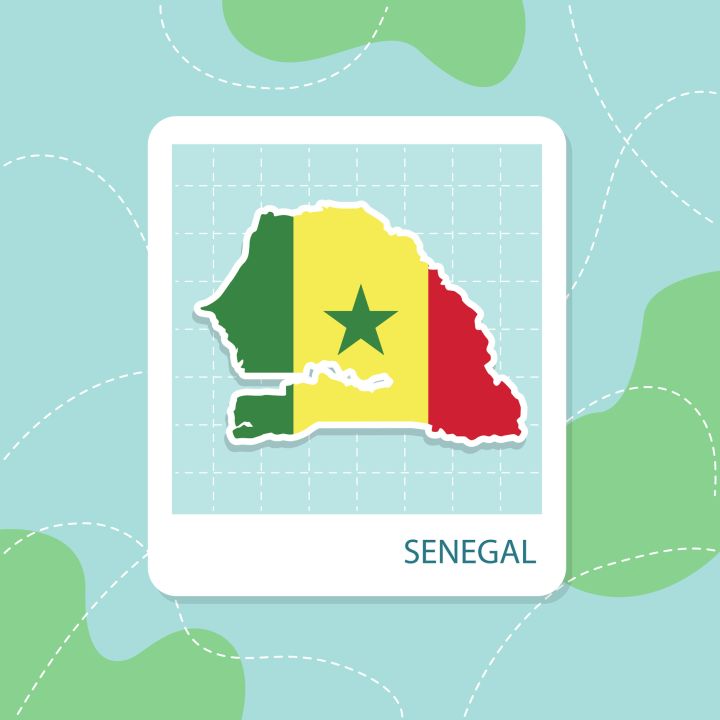
For U.S. passport holders, a visa is not required for stays of less than 90 days
Click Here To Learn More About Senegal
9. South Africa
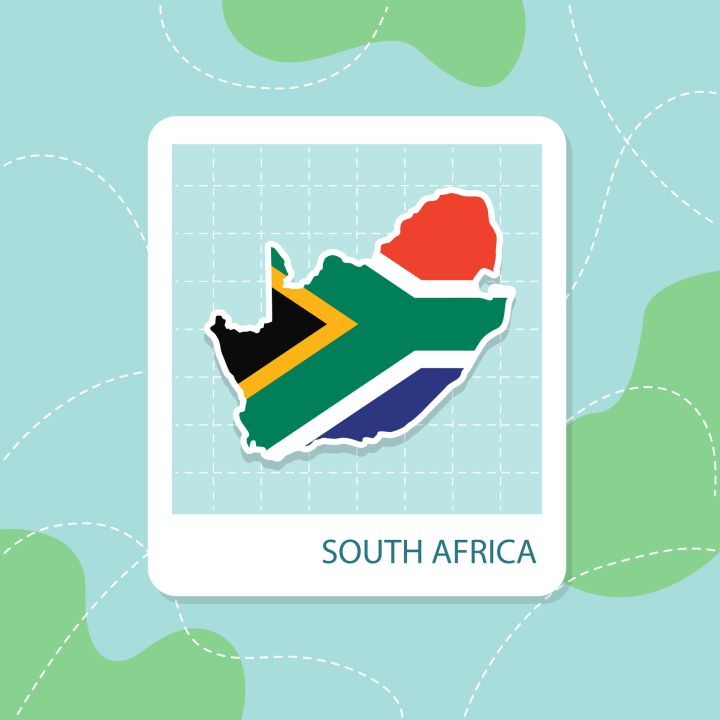
U.S. citizens visiting South Africa for 90 days or less for tourism/business purposes do not need visas.
Click Here To Learn More About South Africa
10. Tunisia
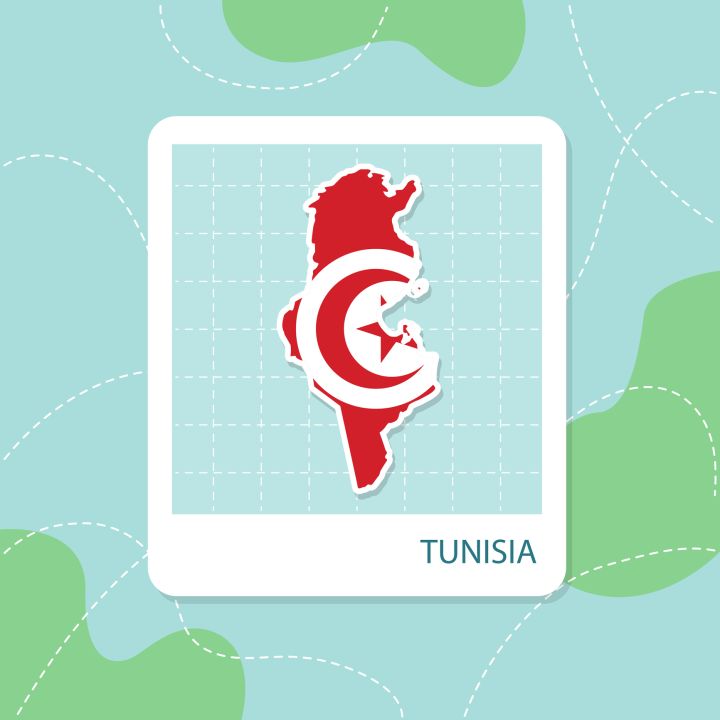
For U.S. passport holders, a visa is not necessary for stays up to 90 days .
Click Here To Learn More About Tunisia
RELATED TAGS

Video Of Diddy Brutally Attacking Cassie Sparks Calls To Re-Investigate Kim Porter’s Death

Kyle Rittenhouse’s Ex-Spokesperson Calls Him ‘Uneducated, Arrogant, and Antagonistic’

Jasmine Crockett’s ‘Bleach Blonde Bad Built Butch Body’ Roast Inspires Songs Mocking MTG

Jasmine Crockett Calls Marjorie Taylor Greene ‘Racist’ While Racist White People Call Crockett ‘Ghetto’

Dr. Ben Carson Apologizes For Comparing Homosexuality To Pedophilia, Bestiality [VIDEO]

Marjorie Taylor Greene Responds To Jasmine Crockett With Weightlifting Video

The 7 Most Infamous U.S. Public Housing Projects

Van Lathan Breaks His Silence After TMZ Fires Him For Argument With Conservative Staffer

The History Of Black People With Blue Eyes

Company That Recruited Workers With ‘Whites Only’ Job Listing Has To Pay Up After Feds Investigate

Celebrating The Black History Of Memorial Day

Delta Sigma Theta: ‘No Records’ Of Georgia State Rep. Angela Moore Belonging To Historic Black Sorority

Vivek Ramaswamy Dog-Whistles About The Racist ‘Great Replacement Theory’ During GOP Primary Debate

Ireland’s Earliest Inhabitants Were Black People With Blue Eyes

Kid Rock Repeatedly Says N-Word With The Hard R During Rolling Stone Interview

After Delays, Dr. Umar Johnson ‘Finally’ Sets An Opening Date For His School For Black Boys
Sign up for the newsone newsletter.
We care about your data. See our privacy policy .
Quick Links
Travel visa to all Africa countries
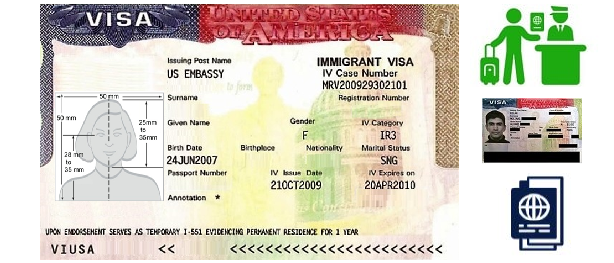
What is a visa
A visa (from the Latin charta visa, meaning "paper that has been seen") is a conditional authorization granted by a territory to a foreigner, allowing them to enter, remain within, or to leave that territory. Visas typically may include limits on the duration of the foreigner's stay, areas within the country they may enter, the dates they may enter, the number of permitted visits or an individual's right to work in the country in question. Visas are associated with the request for permission to enter a territory and thus are, in most countries, distinct from actual formal permission for an alien, to enter and remain in the country. In each instance, a visa is subject to entry permission by an immigration official at the time of actual entry, and can be revoked at any time. A visa most commonly takes the form of a sticker endorsed in the applicant's passport or other travel document.
- Historically, immigration officials were empowered to permit or reject entry of visitors on arrival at the frontiers. If permitted entry, the official would issue a visa, when required, which would be a stamp in a passport. Today, travellers wishing to enter another country must often apply in advance for what is also called a visa, sometimes in person at a consular office, by post, or over the internet. The modern visa may be a sticker or a stamp in the passport, or may take the form of a separate document or an electronic record of the authorization, which the applicant can print before leaving home and produce on entry to the visited territory. Some countries do not require visitors to apply for a visa in advance for short visits.
- Visa applications in advance of arrival give countries a chance to consider the applicant's circumstances, such as financial security, reason for travel, and details of previous visits to the country. Visitors may also be required to undergo and pass security or health checks upon arrival at the port of entry. Some countries require that their citizens, as well as foreign travellers, obtain an "exit visa" to be allowed to leave the country.
- Uniquely, the Norwegian special territory of Svalbard is an entirely visa-free zone under the terms of the Svalbard Treaty. Some countries—such as those in the Schengen Area—have agreements with other countries allowing each other's citizens to travel between them without visas. The World Tourism Organization announced that the number of tourists requiring a visa before travelling was at its lowest level ever in 2015
Visa History

In western Europe in the late 19th century and early 20th century, passports and visas were not generally necessary for moving from one country to another. The relatively high speed and large movements of people travelling by train would have caused bottlenecks if regular passport controls had been used. Passports and visas became usually necessary as travel documents only after World War I
Long before that, in ancient times, passports and visas were usually the same type of travel documents. In the modern world, visas have become separate secondary travel documents, with passports acting as the primary travel documents.
Conditions of Issue a Visa

Some visas can be granted on arrival or by prior application at the country's embassy or consulate, or through a private visa service specialist who is specialized in the issuance of international travel documents. These agencies are authorized by the foreign authority, embassy, or consulate to represent international travellers who are unable or unwilling to travel to the embassy and apply in person. Private visa and passport services collect an additional fee for verifying customer applications, supporting documents, and submitting them to the appropriate authority. If there is no embassy or consulate in one's home country, then one would have to travel to a third country (or apply by post) and try to get a visa issued there. Alternatively, in such cases visas may be pre-arranged for collection on arrival at the border. The need or absence of need of a visa generally depends on the citizenship of the applicant, the intended duration of the stay, and the activities that the applicant may wish to undertake in the country he visits; these may delineate different formal categories of visas, with different issue conditions.
Types of Visas Online
Each country typically has a multitude of categories of visas with various names. The most common types and names of visas include:
Short-stay or visitor visas
Long-stay visas, immigrant visas, official visas, on-arrival visas.
Also known as visas on arrival (VOA), they are granted at a port of entry. This is distinct from visa-free entry, where no visa is required, as the visitor must still obtain the visa on arrival before proceeding to immigration control.
Transit visas
For passing through the country of issue to a destination outside that country. Validity of transit visas are usually limited by short terms such as several hours to ten days depending on the size of the country or the circumstances of a particular transit itinerary.
- Airport Taxi
- Visa and eVisa
- Top Tourist Destinations
- Travel Restrictions
- Cars Rental
- Election 2024
- Entertainment
- Newsletters
- Photography
- Personal Finance
- AP Investigations
- AP Buyline Personal Finance
- AP Buyline Shopping
- Press Releases
- Israel-Hamas War
- Russia-Ukraine War
- Global elections
- Asia Pacific
- Latin America
- Middle East
- Election Results
- Delegate Tracker
- AP & Elections
- Auto Racing
- 2024 Paris Olympic Games
- Movie reviews
- Book reviews
- Personal finance
- Financial Markets
- Business Highlights
- Financial wellness
- Artificial Intelligence
- Social Media
Rwanda announces visa-free travel for all Africans as continent opens up to free movement of people
FILE — President of Rwanda Paul Kagame walks along Downing Street to a meeting with Britain’s Prime Minister Rishi Sunak, in London, Thursday, May 4, 2023. Rwanda announced Thursday, Nov. 2, 2023 visa-free entry for all Africans, becoming the latest nation on the continent to announce such a measure aimed at boosting free movement of people and trade to rival Europe’s Schengen zone. President Paul Kagame made the announcement in the Rwandan capital, Kigali, where he pitched the potential of Africa as “a unified tourism destination” for a continent that still relies on 60% of its tourists from outside Africa, according to data from the United Nations Economic Commission for Africa.(AP Photo/Vadim Ghirda-File)
- Copy Link copied
NAIROBI, Kenya (AP) — Rwanda announced Thursday that it will allow Africans to travel visa-free to the country, becoming the latest nation on the continent to announce such a measure aimed at boosting free movement of people and trade to rival Europe’s Schengen zone.
President Paul Kagame made the announcement in the Rwandan capital, Kigali, where he pitched the potential of Africa as “a unified tourism destination” for a continent that still relies on 60% of its tourists from outside Africa, according to data from the United Nations Economic Commission for Africa.
“Any African, can get on a plane to Rwanda whenever they wish and they will not pay a thing to enter our country” said Kagame during the 23rd Global Summit of the World Travel and Tourism Council.
“We should not lose sight of our own continental market,” he said. “Africans are the future of global tourism as our middle class continues to grow at a fast pace in the decades to come.”
Once implemented, Rwanda will become the fourth African country to remove travel restrictions for Africans. Other countries that have waived visas to African nationals are Gambia, Benin and Seychelles .
Kenya’s President William Ruto announced Monday plans to allow all Africans to travel to the East African nation visa-free by December 31.
“Visa restrictions amongst ourselves is working against us. When people cannot travel, business people cannot travel, entrepreneurs cannot travel we all become net losers” said Ruto at an international summit in Congo Brazzaville.
The African Union in 2016 launched an African passport with much fanfare, saying it would rival the European Union model in “unleashing the potential of the continent.” However, only diplomats and AU officials have been issued the travel document so far.
The African Passport and free movement of people is “aimed at removing restrictions on Africans ability to travel, work and live within their own continent,” The AU says on its website.
AU also launched the the African Continental Free Trade Area , a continent-wide free trade area estimated to be worth $3.4 trillion, which aims to create a single unified market for the continent’s 1.3 billion people and to boost economic development.
Follow AP’s Africa coverage at: https://apnews.com/hub/africa
- Mountaineering
- Holyland Pilgrimage
Europe Pilgrimage
- Destination Uganda
- Destination Tanzania
- Nairobi Excursions
- Mombasa Excursions
- Destination Kenya
- Travel Tips
Holylands Pilgrimage

Visit South Africa

Visit France

Corporates Incentive
7 days south africa package.
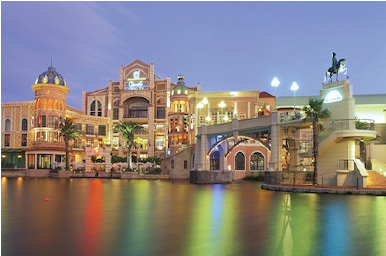
Is on the southern tip of Africa, It is bordered by the Atlantic Ocean on the west, the Indian Ocean on the south and east. South Africa’s struggle for democracy continues ...
5 Days Dubai Package

WHY VISIT DUBAI (UAE) Dubai is the largest and most populous city in the United Arab Emirates, on the Persian Gulf. Currently, they have the world's largest indoor ski facility, third ...
7 Days Bangkok Package

WHY VISIT THAILAND Also called Krung Thep Maha Nakhon in Thai, the city of Bangkok is Thailand's capital. Thailand, also known as the Land of Smiles, is a jewel ...
Family Package

'…….Mauritius was made first and then heaven, heaven being copied after Mauritius' - Mark Twain
School Packages
France school package.

France has 37 sites inscribed in UNESCO’S World Heritage List and features of high cultural interest, Small and picturesque French villages of quality heritage and remarkable gardens. There’s a reason Parisis the ...
Kenya Safaris
» Recommended Kenya Safaris » Specialist Safaris » Kenya Safari Camps & Lodges
East Africa Safaris
» Recommended East Africa safaris » Specialist Safaris » Tanzania Safari Camps & Lodges
Special Interest Tours
» Corporate Incentives » Students Educational & Sports Tours » Christians Pilgrimages » Family Packages
Special Offers
» Road Packages » Air Packages » Hotel Deals ---->
#MagicalKenya
Other Services
» Nairobi Excursions » Mombasa Excursions » Transport » Mountaineering » Visa
Kenya Safari Lodges & Camps
» Mt. Kenya / Aberdares » Samburu / Shaba / Meru » Riftvalley Lodges
Important Links
» Kenya Association of Tour Operators » Kenya Tourism Board » Magical Kenya » Ministry of Tourism, Kenya » Kenya Wildlife Service » Nature Kenya
Africa Visa Travel Services Ltd.
Suite 304, 3rd Flr - Vinodeep Towers, Baricho Road, Off Bunyala Road, Nairobi, Kenya
E-mail: [email protected] Telephone: +254 (0-733) 28 36 32 Mobile: +254 (0-722) 28 36 32
Please publish modules in offcanvas position.

Wealthiest Man In Africa Says It’s Harder For Him To Travel The Continent Than For Europeans
N igerian billionaire investor Aliko Dangote highlighted the hurdles Africans face traveling within their continent at the Africa CEO Forum in Kigali, Rwanda on May 17.
Dangote noted the intercontinental travel struggles for Africans during the annual summit’s “Presidential Panel.” The successful entrepreneur, Africa’s wealthiest man, said he needed 35 visas to travel within the continent he’s from. Based on his own experience, Dangote highlighted how the issue was problematic and inconvenient. The 67-year-old president and CEO of the Dangote Group was accompanied on stage by moderator Larry Madowo and fellow panelist, Total Energies CEO Patrick Pouyanné of France.
“As an investor, as someone who wants to make Africa great, I have to apply for 35 different visas on my passport,” Dangote said. “I really don’t have the time to go and drop off my passport in embassies to get a visa.”
“I can assure you that Patrick doesn’t need 35 visas on a French passport, which means you [Patrick] have freer movement than myself in Africa,” the billionaire continued.
Which African Countries Allow Visa-Free Access To African Nationals?
During the forum, Dangote spotlighted Rwanda, Benin, Gambia, and Seychelles for providing visa-free access to Africans. Rwanda is the latest to grant visa-free access to Africans without harboring them with excessive fees.
Which Country Has The Most Powerful Passport In Africa?
According to VisaGuide.World’s 2024 Passport Index , the most “powerful” African passport is that of Seychelles. The country is Africa’s smallest, and it’s an island republic located in the Indian Ocean. More directly, it’s northeast of Madagascar and southeast of mainland East Africa.
As far as what it means to be powerful , the Seychellois passport allows visa-free travel to 124 countries worldwide. That versatility and flexibility rank the country 64th out of 199 on VisaGuide.World’s index.
Some of the other most powerful African passports currently are those of Mauritius, South Africa, and Botswana.

Africa: New UAE Visa Rules Set to Hit African Travellers, Airlines
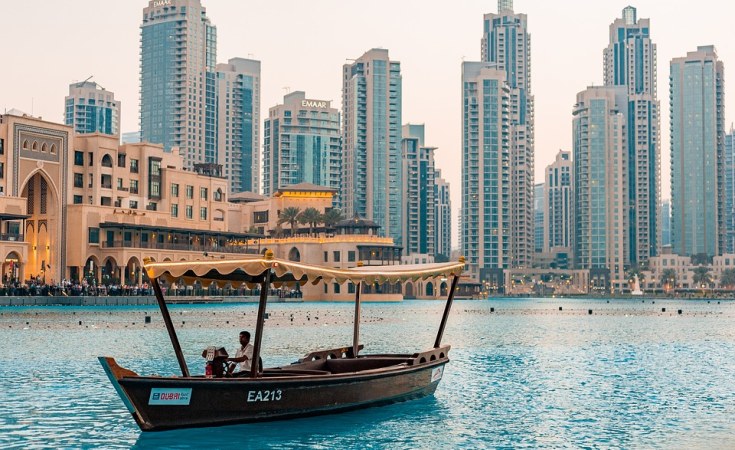
The United Arab Emirates (UAE) has introduced stringent measures to deter individuals from entering the Gulf nation as visitors and subsequently working without the necessary documents.
The oil-rich nation has mandated airlines to verify specific details before allowing passengers to board, warning that carriers will be held accountable for non-compliance.
The new guidelines stipulate that passengers must have either 3,000 dirhams ($833) for a one-month visa or 5,000 dirhams for a three-month visa.
Additionally, travelers are required to have a hotel reservation and a return ticket. Airlines that fail to adhere to these regulations will face fines of 5,000 dirhams ($1,300) per passenger in violation.
East African countries have seen a significant number of their citizens travel to Dubai for employment, with many using visiting visas.
Dubai remains a popular destination for African job seekers due to its low incidence of labor disputes and attractive wages.
Upon arrival, airport officials will inquire about the purpose of the visit, accommodation details, and financial means. Travelers unable to provide satisfactory responses will be denied entry.
Dubai says visitors on tourist or visiting visas are prohibited from working, and it is illegal for travel and recruitment agencies to offer employment to these visa holders.
Those on employment visas must complete all required procedures upon entry to legally work in the UAE.
Tourists must provide evidence of their hotel bookings, return tickets, and sufficient funds for their stay. If visiting friends or relatives, officials may request copies of the host's visa and passport, as well as their address, phone number, and accommodation details.
Read the original article on Business Day Africa .
Premium Partners
- Africa: African Development Bank Group 2024 Annual Meetings - African Nations Urged to Enhance Private Sector Financing for Tertiary Education (African Development Bank (AfDB))
- Africa: 2024 Annual Meetings - Africa's Voice Needs to Be Heard, Says African Development Bank President (African Development Bank (AfDB))
- Africa: Annual Meetings Offer Platform for Innovative Ideas On Global Financial Reform and Provision of Resources to Develop Africa (African Development Bank (AfDB))
- Africa: 2024 Annual Meetings - African Development Bank President Outlines Gains of Historic 2023 Dakar 2 Summit (African Development Bank (AfDB))
- Africa: African Development Bank Annual Meetings 2024 - AfDB, UN Women Strengthen Collaboration to Advance Women's Economic Empowerment (African Development Bank (AfDB))
- Africa: Daily School Meals for Children Across Africa Crucial to Africa's Future, Rockefeller Foundation Side Event At African Development Bank Annual Meeting Told (African Development Bank (AfDB))
- Africa: African Development Bank Annual Meetings 2024 - African Development Bank Secretary General Joins South African Leaders to Highlight Investment Opportunities of Enlarging Brics Alliance (African Development Bank (AfDB))
- Africa: Healthy Heart Africa - Pioneering a Healthier Future for Africa (AstraZeneca)
- Africa: Africa Braces For A Possible Trump Presidency (InfoWire)
- Africa: USAID and OCP Forge Partnership to Revolutionize Agriculture (OCP)
- Africa: Best African-Born Players in NBA History (InfoWire)
AllAfrica publishes around 500 reports a day from more than 100 news organizations and over 500 other institutions and individuals , representing a diversity of positions on every topic. We publish news and views ranging from vigorous opponents of governments to government publications and spokespersons. Publishers named above each report are responsible for their own content, which AllAfrica does not have the legal right to edit or correct.
Articles and commentaries that identify allAfrica.com as the publisher are produced or commissioned by AllAfrica . To address comments or complaints, please Contact us .
AllAfrica is a voice of, by and about Africa - aggregating, producing and distributing 500 news and information items daily from over 100 African news organizations and our own reporters to an African and global public. We operate from Cape Town, Dakar, Abuja, Johannesburg, Nairobi and Washington DC.
- Support our work
- Sign up for our newsletter
- For Advertisers

- © 2024 AllAfrica
- Privacy Policy

Sign up for free AllAfrica Newsletters
Get the latest in African news delivered straight to your inbox
By submitting above, you agree to our privacy policy .
Almost finished...
We need to confirm your email address.
To complete the process, please follow the instructions in the email we just sent you.
There was a problem processing your submission. Please try again later.
We've detected unusual activity from your computer network
To continue, please click the box below to let us know you're not a robot.
Why did this happen?
Please make sure your browser supports JavaScript and cookies and that you are not blocking them from loading. For more information you can review our Terms of Service and Cookie Policy .
For inquiries related to this message please contact our support team and provide the reference ID below.
We use cookies to ensure best experience for you
We use cookies and other tracking technologies to improve your browsing experience on our site, show personalize content and targeted ads, analyze site traffic, and understand where our audience is coming from. You can also read our privacy policy , We use cookies to ensure the best experience for you on our website.
- Leaders Speak
- Brand Solutions
- Visas and Passports
- Thailand eases visa rules to allow longer stays for tourists, students
- Updated On May 28, 2024 at 07:11 PM IST

South Africa launches 'nomad visa' for remote workers
South Africa’s Department of Home Affairs introduces a 'nomad visa' for remote workers, with a 1 million rand income requirement. The move aims to assist major foreign-owned employers facing challenges due to delays in work permit processing and a shortage of skilled workers. Updates include a points-based system for general work visas and a reduction in police clearance certificate period.
- Published On May 28, 2024 at 07:07 PM IST
All Comments
By commenting, you agree to the Prohibited Content Policy
Find this Comment Offensive?
- Foul Language
- Inciting hatred against a certain community
- Out of Context / Spam
Join the community of 2M+ industry professionals
Subscribe to our newsletter to get latest insights & analysis., download ettravelworld app.
- Get Realtime updates
- Save your favourite articles
- Thailand visa rules
- remote workers
- tourism sector
- government policy
- travel news
- ettravelworld
- Visas & Passports

IMAGES
VIDEO
COMMENTS
There is an exception to this rule, however. Sometimes, visas are valid from the moment they're issued, rather than from your date of arrival. For example, tourist visas for Ghana are valid for 90 days from the date of issue; so applying more than 30 days in advance for a 60-day stay could mean that your visa expires before your trip finishes.
A single entry visa costs $51 usd in visa fees and a transit visa costs $21 (there is no transit charge if the visitor stays within the airport). Passports must be valid for six months and need two blank pages. Bring a printed copy of your type of visa to show officials upon arrival. An East Africa Tourist Visa is also available, which allows ...
Quick Facts. PASSPORT VALIDITY: 30 days beyond your intended date of exit from South Africa.. BLANK PASSPORT PAGES: 2 consecutive empty visa pages per entry (not including endorsement pages). TOURIST VISA REQUIRED: No, if visiting 90 days or less. VACCINATIONS: Yellow fever at least 10 days before arrival is required for travelers originating ...
South Africa Visa Requirements. Most nationalities, including UK, USA, Canadian, New Zealand & Australian passport holders, do not require a visa to visit South Africa for up to 90 days. Travelling to or through South Africa with children. There are special requirements for travelling to South Africa with children under the age of 18.
All you need to enter the gateway to Africa is a passport with six months validity. Duration of stay permitted visa-free - 90 days. Additional notes - Extending past your 90 days visa-free stay requires you to appear before a judge - so best to get your itinerary in order.
The first step in obtaining a visa to travel to Africa is to research the specific visa requirements for the country or countries you plan to visit. Africa is a vast continent with different visa policies for each country. Some countries might require a visa for entry, while others may allow visa-free travel or issue visas upon arrival. To ...
Apply for a visa. If you want to visit South Africa, you must produce a valid visa before you can enter into the country. A visa will be issued for a visit for tourism or business purposes and is valid for a period of 90 days. Some countries are exempted from visa control, which means that citizens from those countries do not need a visa to ...
Kenya Visa. You must apply for your Kenya visa online in advance. It costs around $50 for 90 days for most nationalities. You can also get the East Africa tourist Visa for $100. This visa is valid for entry to Kenya, Rwanda, and Uganda. The last time I traveled to Kenya, the visa was available at the border on arrival.
Duration and Purpose of Stay. U.S. citizens (U.S. passport holders) visiting the Republic of South Africa for ninety (90) days or less for tourism / business purposes do not need visas. U.S. green card holders (non-US passport holders) and nationals of other countries must check the list of visa exempt countries to see if they need to apply for ...
Applying for a visa online to travel to Africa offers numerous benefits compared to traditional methods. In today's digital age, the convenience and efficiency of online visa applications cannot be overstated. By opting for the e-visa option, travelers can save time and energy by avoiding long queues at embassies or consulates. The online ...
This visa typically allows you to stay in the country for a limited period, ranging from a few weeks to several months, depending on the destination. 2. Business Visa. If you plan to travel to Africa for business-related purposes, such as attending conferences, meetings, or exploring potential partnerships, a business visa is necessary.
If you are a U.S. citizen planning to travel outside the U.S., you may need a visa to enter a foreign country. Learn how to find your destination's visa requirements. While not all countries require visas for American travelers, many do. Look up your destination using the U.S. State Department's Learn About Your Destination search tool.
Passport and Visa Requirements for U.S. Citizens Traveling to Africa. Many Americans travel to Africa from the United States each year for business, tourism, and visiting family. However, before you start packing your bags, it's crucial to familiarize yourself with the passport and visa requirements for U.S. citizens traveling to Africa.
9. COUNTRY OF ENTRY. 10 MOVEMENT OF PERSONS. The East Africa Tourist Visa allows multiple- entry to Kenya, Rwanda and Uganda. The visa is as a result of joint initiative by respective Heads of States to ease regional travel and create opportunities for tourists to explore East Africa's attractive diversity. APPLY NOW.
Create your profile. Step 1. Submit your online form. Step 2. Upload documentation. Step 3. Confirm secure payment. Step 4.
Only Visa and Mastercard are accepted for online payments. Contact your nearest Botswana Mission Abroad, Africa's Eden Travel, or your tour operator for more information. Single Entry - 300 Pula or US$30 per person. Multiple Entry - 500 Pula or US$50 per person. Transit Visa - As above.
The East Africa Tourist Visa is a joint single-entry electronic visa dedicated to all eligible citizens who wish to visit Kenya, Rwanda, and Uganda using one document.. The Tourist Visa to East Africa stays valid for 90 days in a 180-day period starting from the date of issue.All visitors are able to travel freely within East Africa using this e-Visa system.
9. South Africa. U.S. citizens visiting South Africa for 90 days or less for tourism/business purposes do not need visas. Click Here To Learn More About South Africa. 10. Tunisia. For U.S ...
Travel visa to all Africa countries. What is a visa. A visa (from the Latin charta visa, meaning "paper that has been seen") is a conditional authorization granted by a territory to a foreigner, allowing them to enter, remain within, or to leave that territory. Visas typically may include limits on the duration of the foreigner's stay, areas ...
NAIROBI, Kenya (AP) — Rwanda announced Thursday that it will allow Africans to travel visa-free to the country, becoming the latest nation on the continent to announce such a measure aimed at boosting free movement of people and trade to rival Europe's Schengen zone.. President Paul Kagame made the announcement in the Rwandan capital, Kigali, where he pitched the potential of Africa as ...
Whether your baggage goes missing or you have to cancel your flight for specific reasons, you should travel with peace of mind that you and your family are covered for the unforeseen. Always ensure that you pay for your flights and accommodation on your Visa card to take advantage of the complimentary travel insurance provided by your Visa card.
Let your bank or card issuer know you're travelling. Apply for mobile alerts. Memorise your PIN before departing. Make a copy of everything in your wallet. Paying in local currency could save you money when travelling. Find ATMs while travelling. Travel with Visa and you'll have our tools, support and guidance every step of the way.
As a leading destination Management Company in Eastern Africa, with years of extensive, hands-on experience, Africa Viza provides the leisure, business, and exclusive traveler with a great-dream-come-true travel experience. We pride ourselves on innovation, care and flexibility, and offer a full range of travel services, from transfers, airport meet and greet, through to specialized tours for ...
The successful entrepreneur, Africa's wealthiest man, said he needed 35 visas to travel within the continent he's from. Based on his own experience, Dangote highlighted how the issue was ...
The new guidelines stipulate that passengers must have either 3,000 dirhams ($833) for a one-month visa or 5,000 dirhams for a three-month visa. Additionally, travelers are required to have a ...
May 21, 2024 at 10:56 AM EDT. Save. South Africa's Department of Home Affairs refiled long-awaited changes to its work-permit regime to allow for the creation of a so-called nomad visa for ...
Thailand Visa Rules: The measure is aimed at promoting the tourism sector which is a key growth driver of Thailand's economy and a major source of employment. Beginning in June, travellers from as many as 93 countries will be eligible travellers to stay in Thailand for up to 60 days, an increase from the current list of 57 nations, according to government spokesperson Chai Wacharonke.